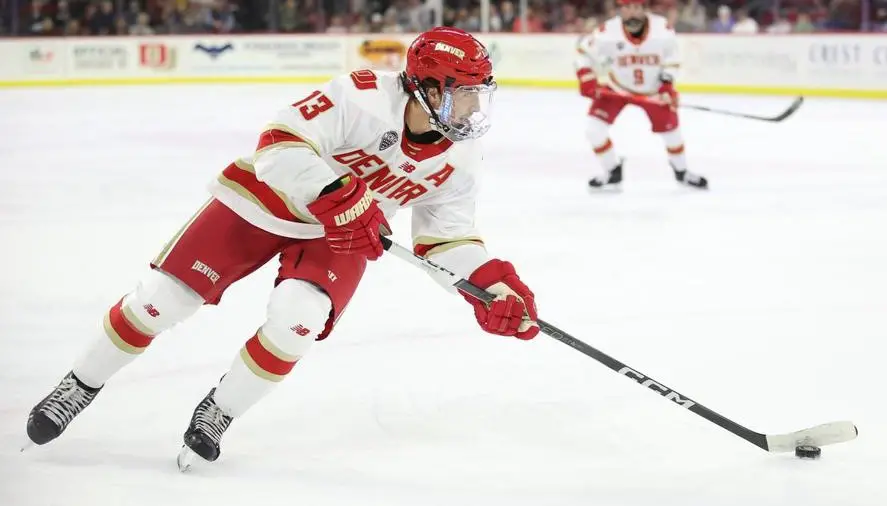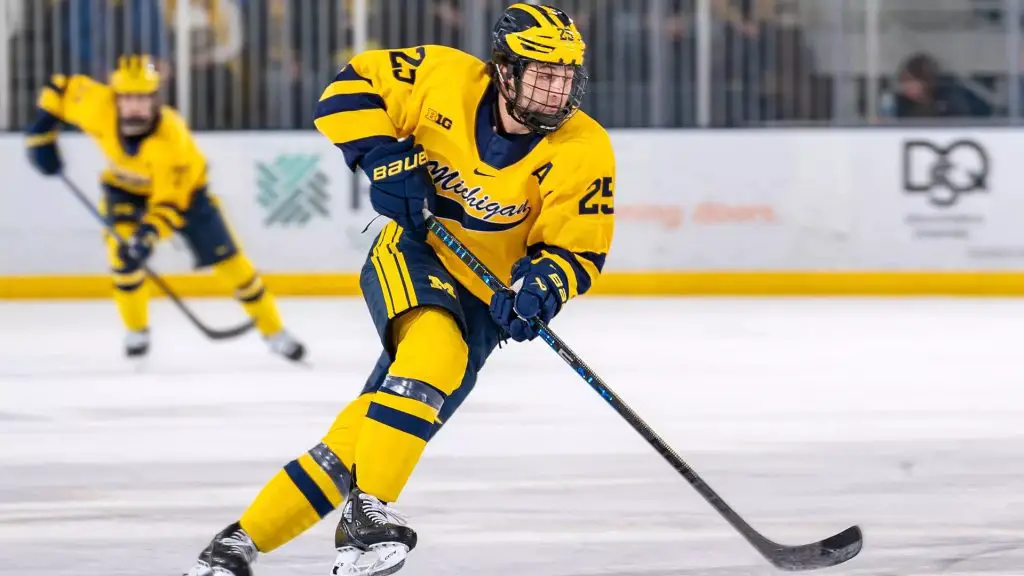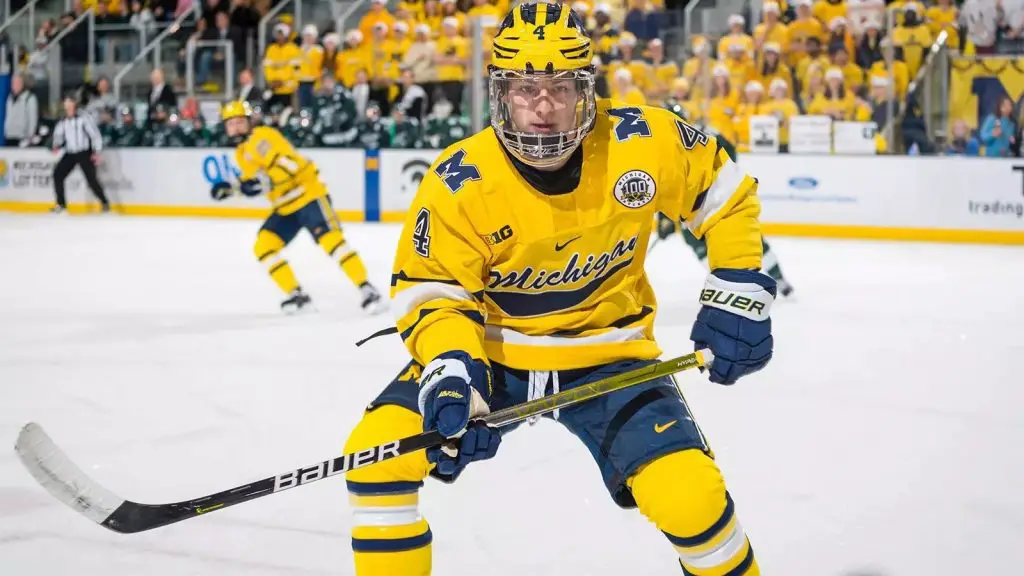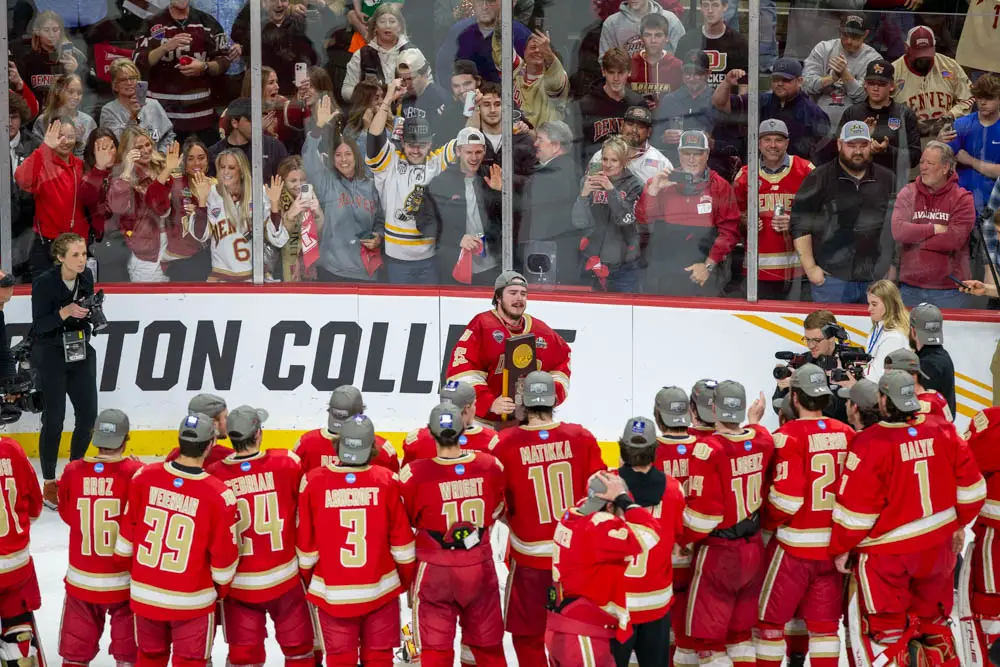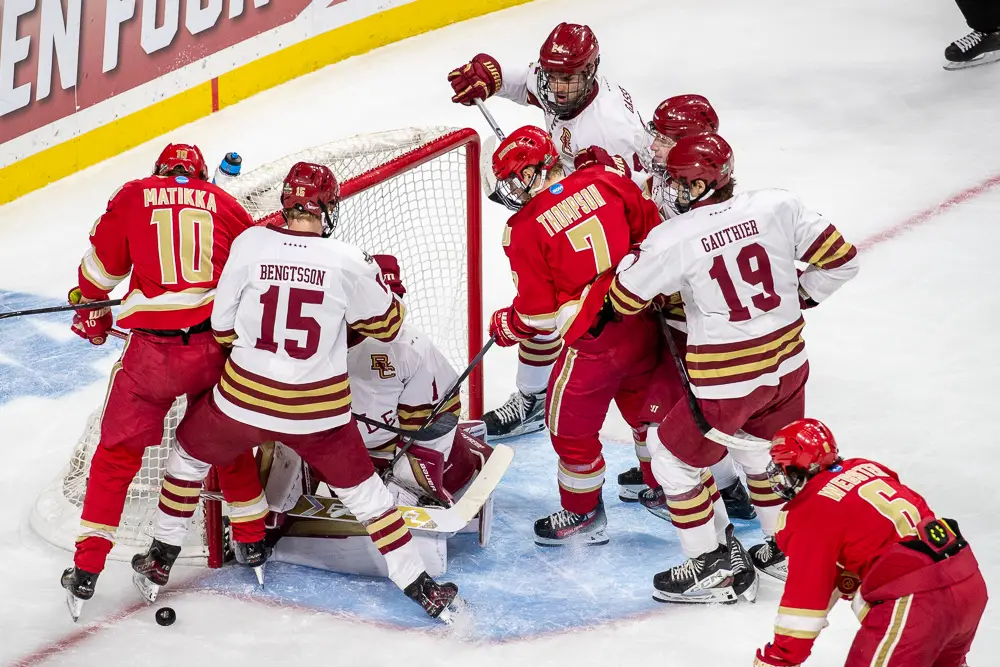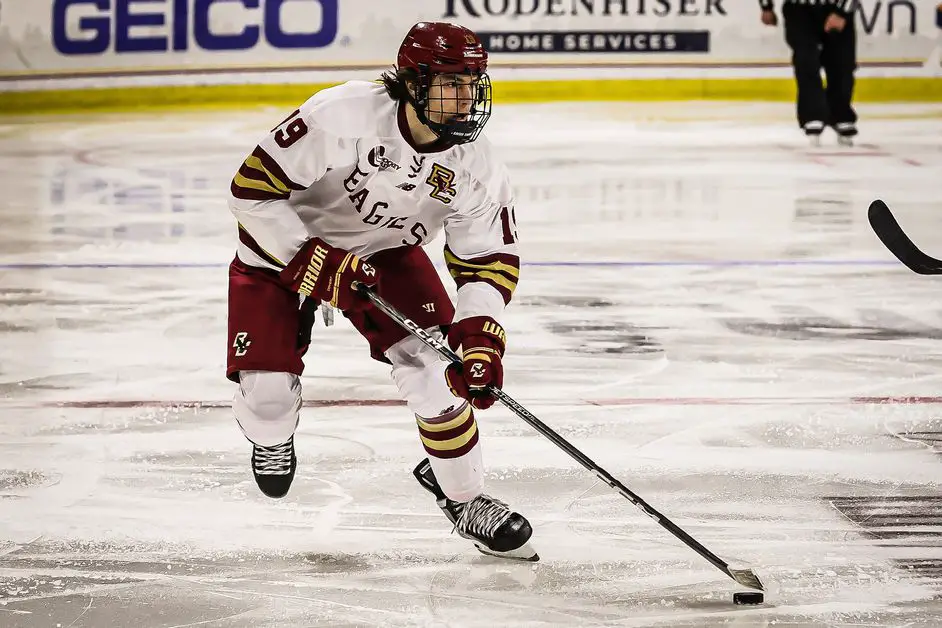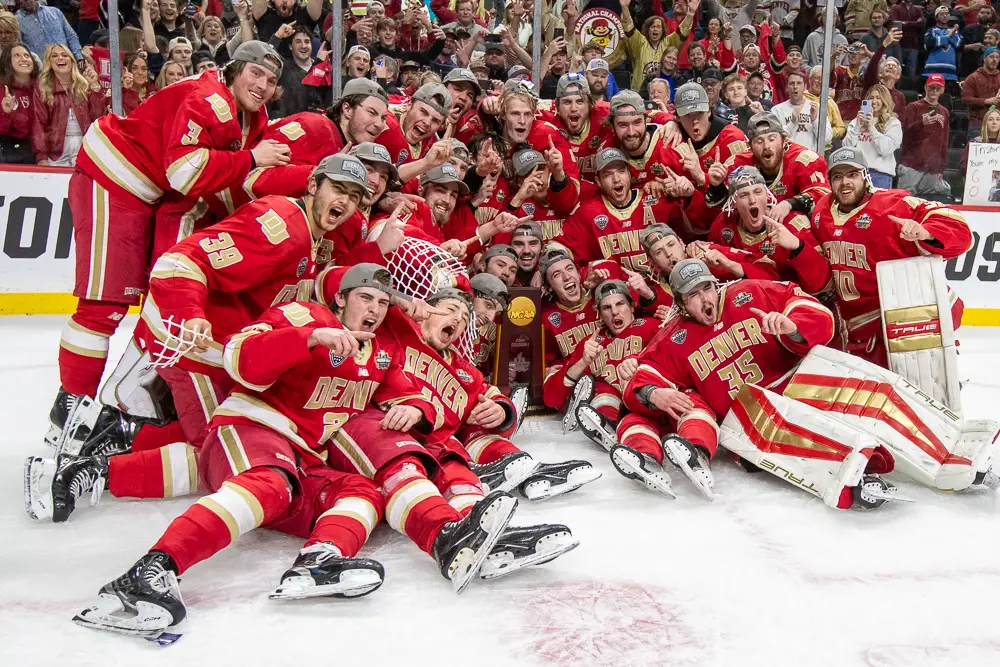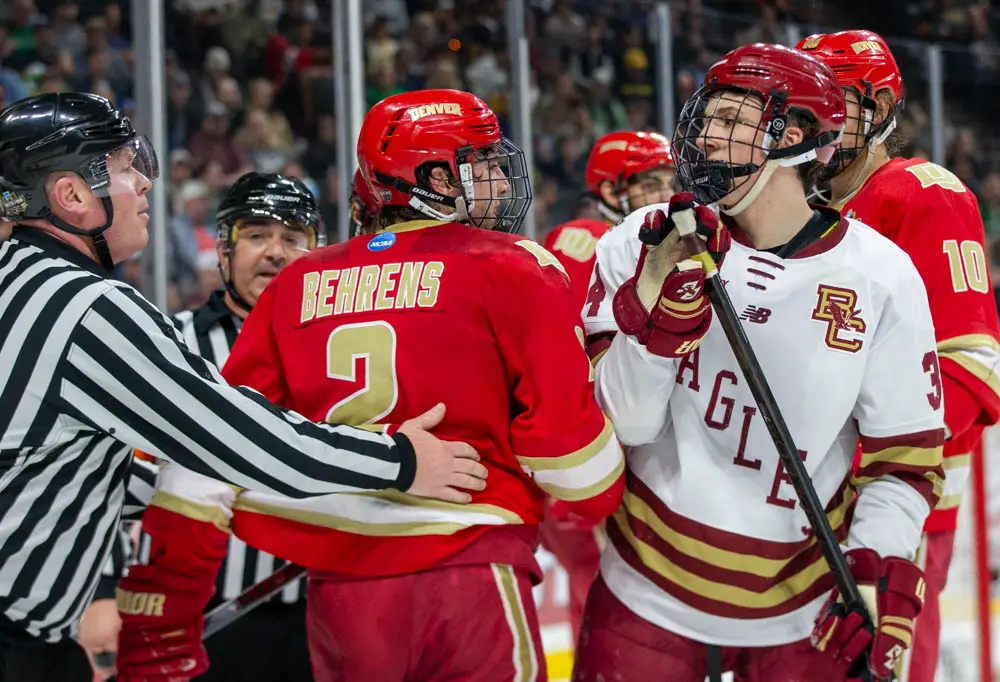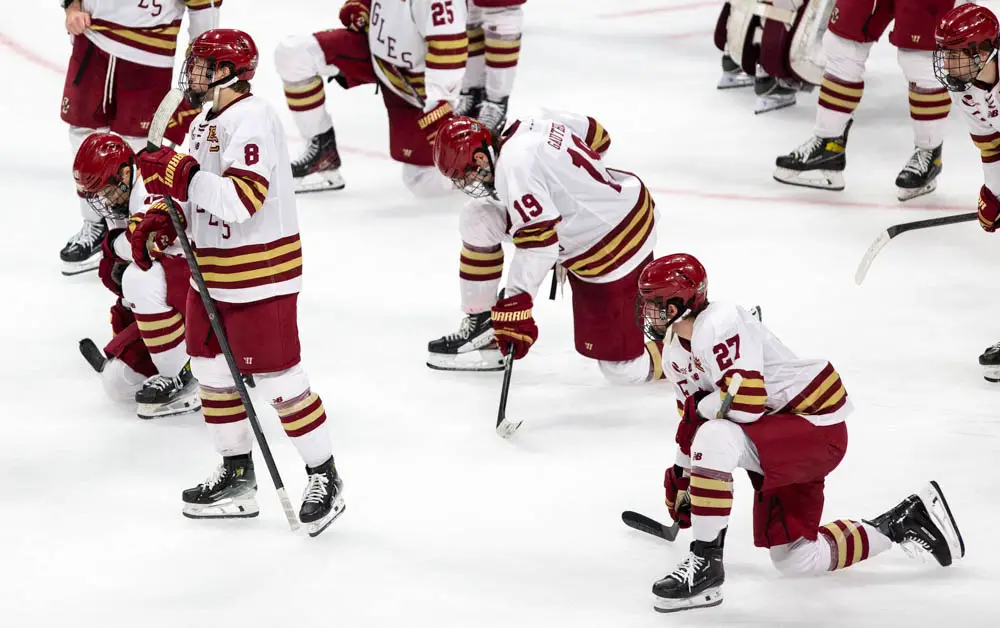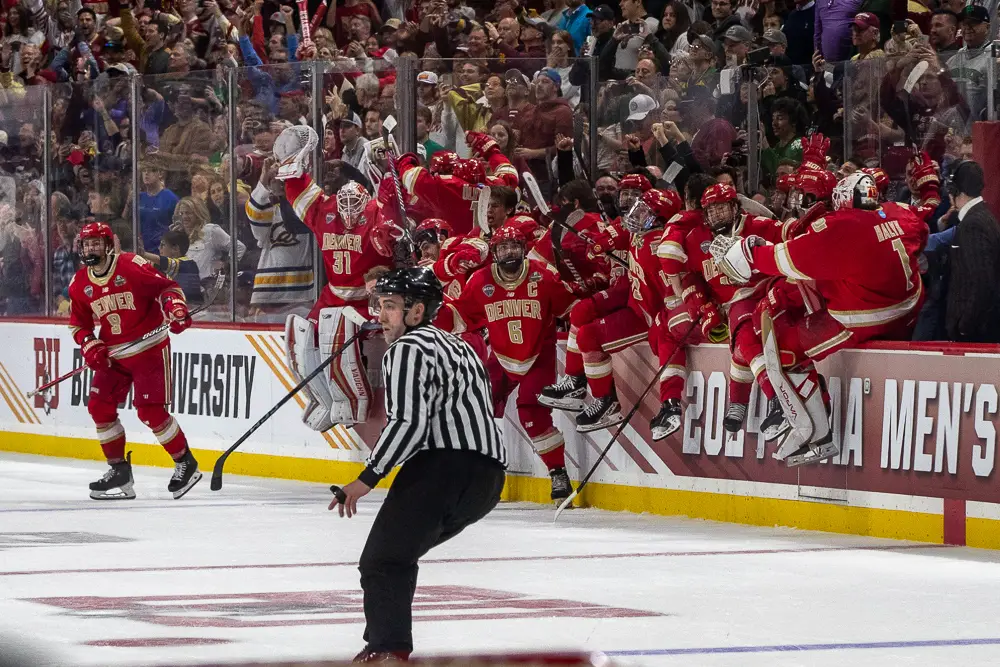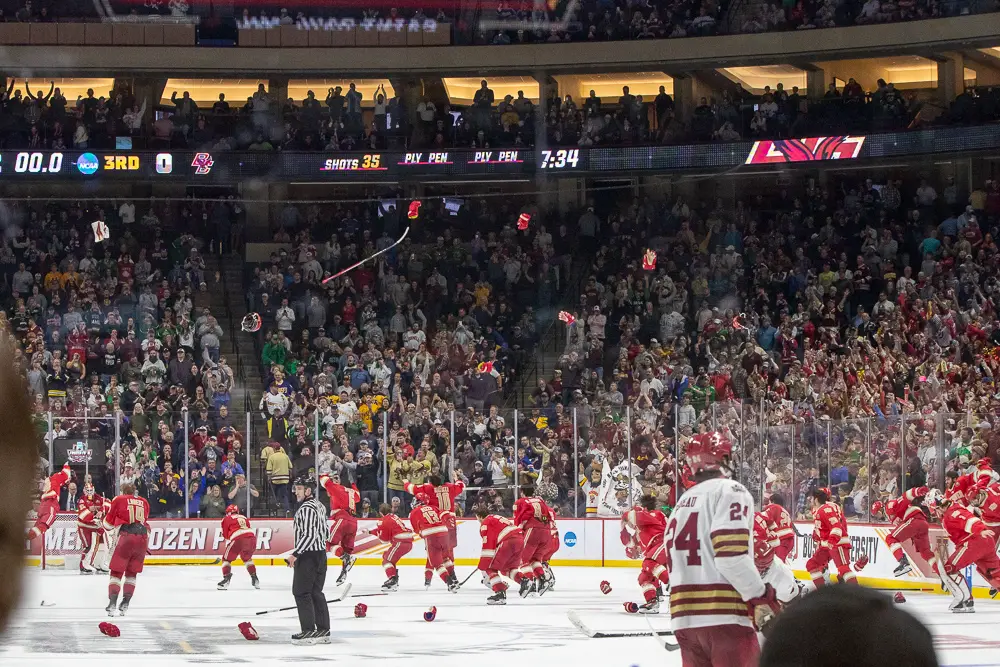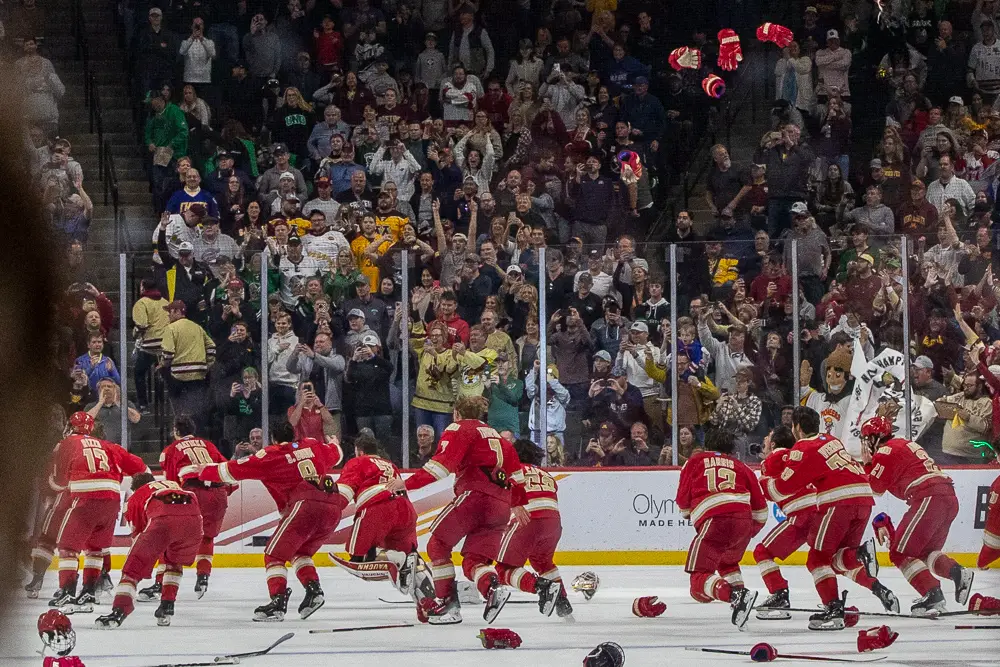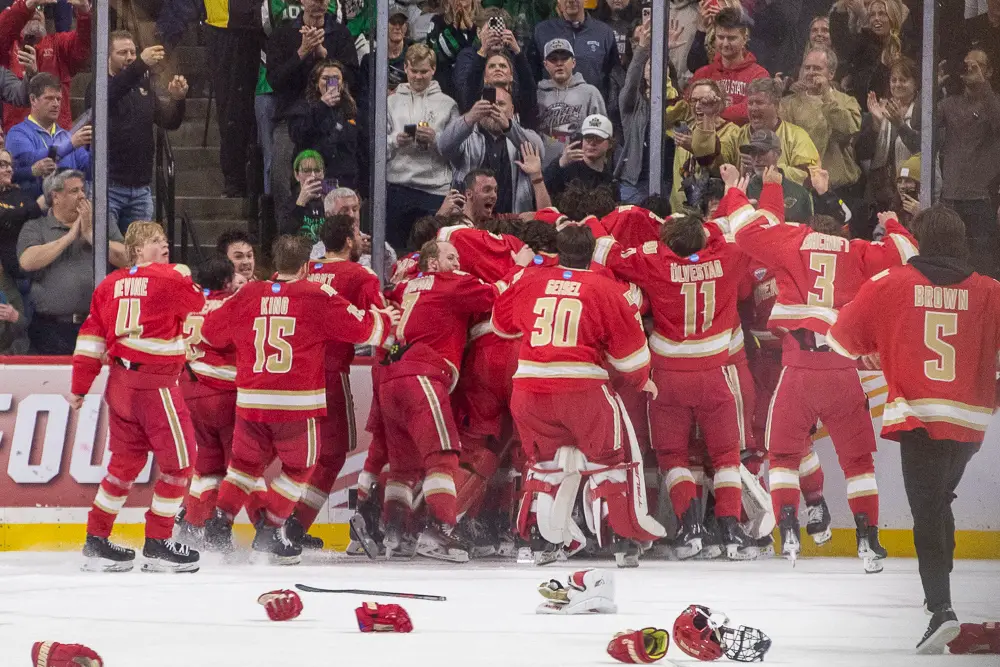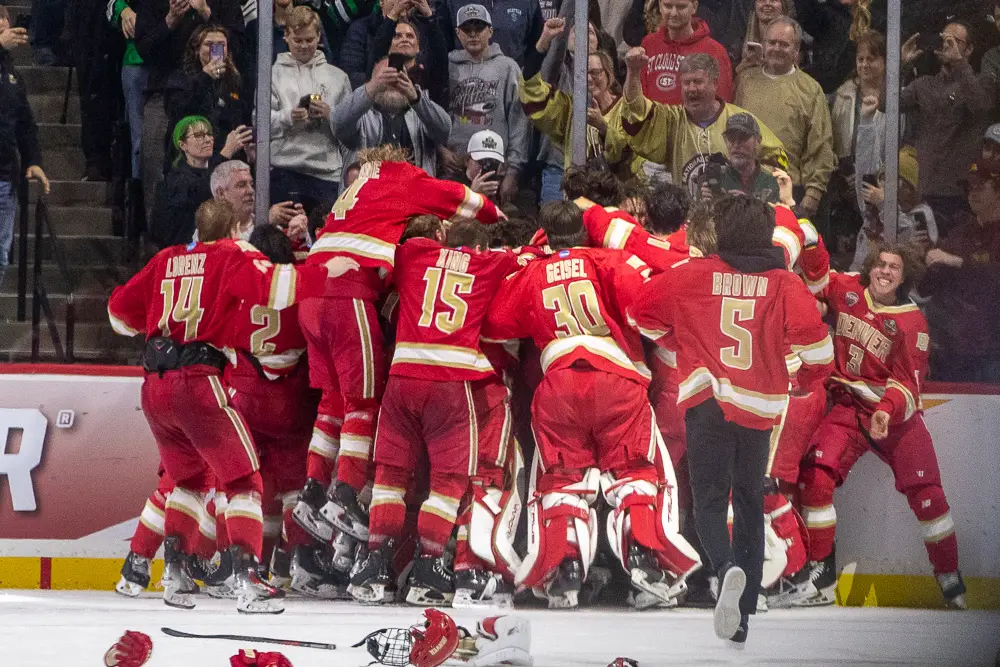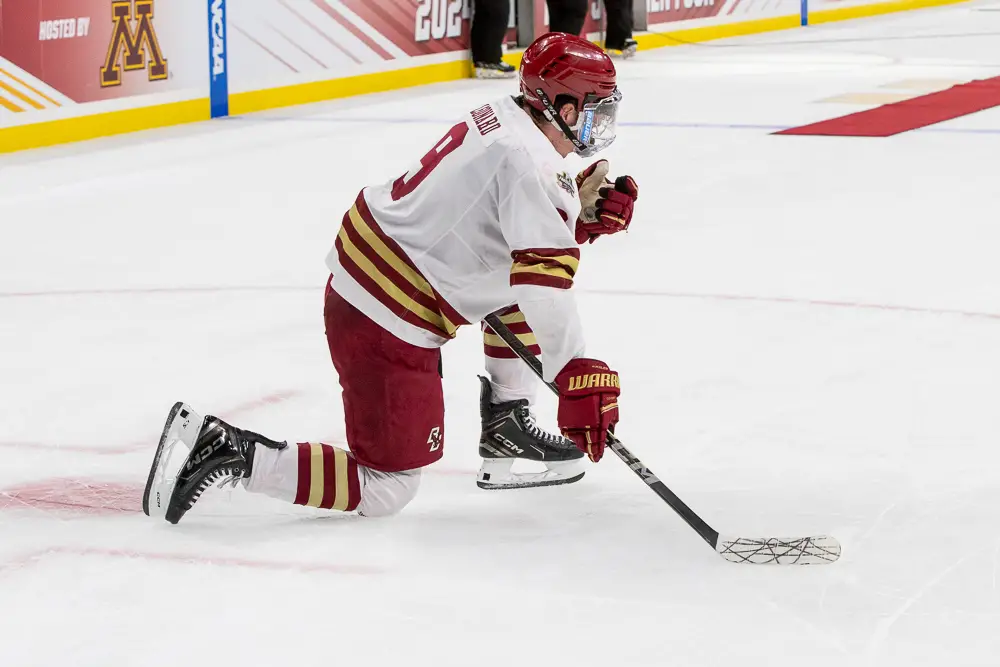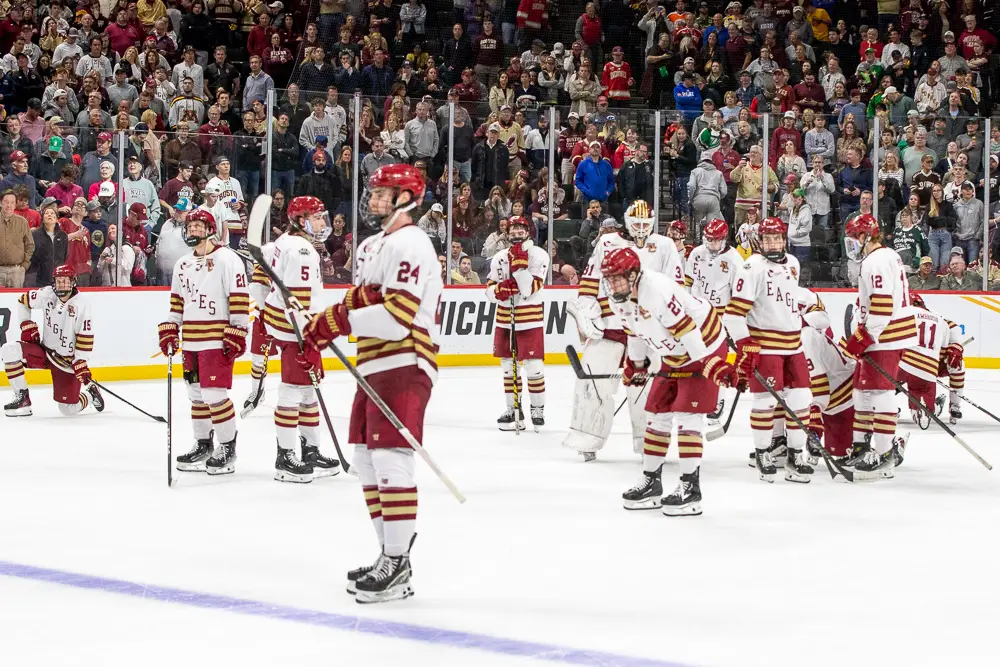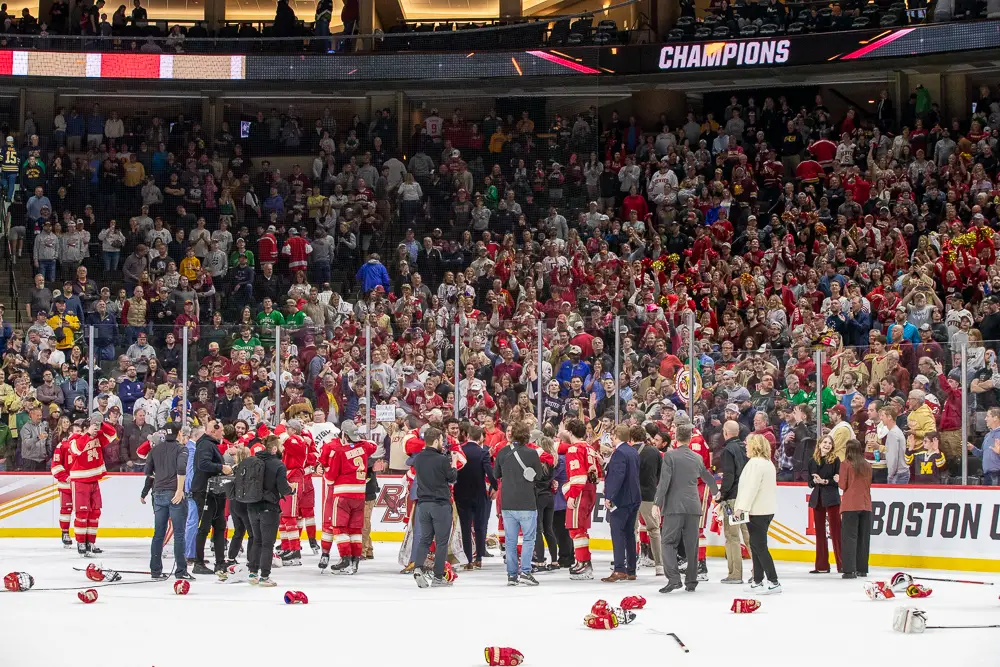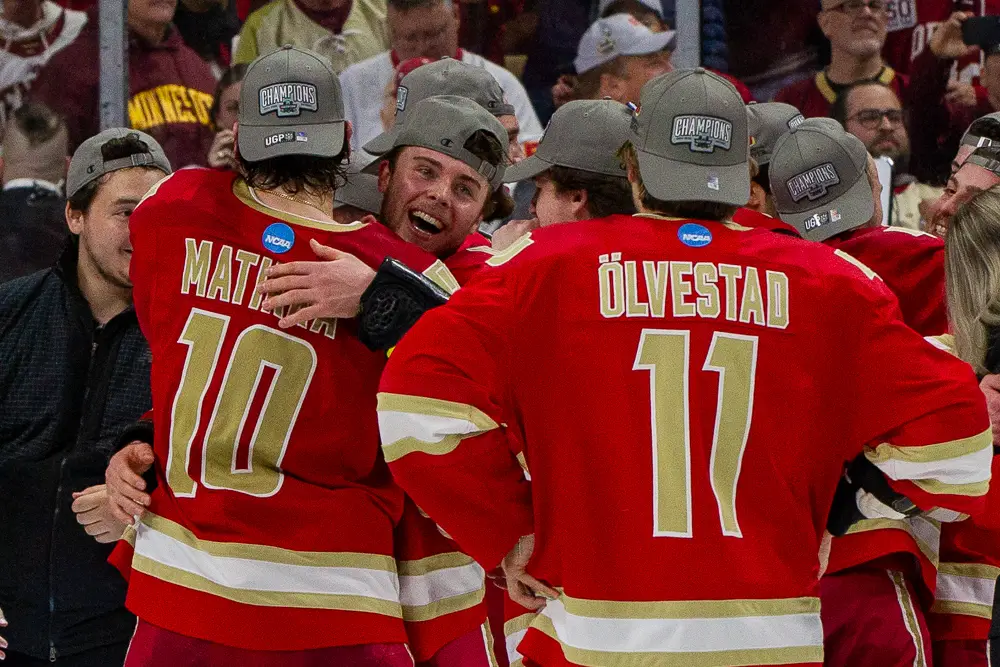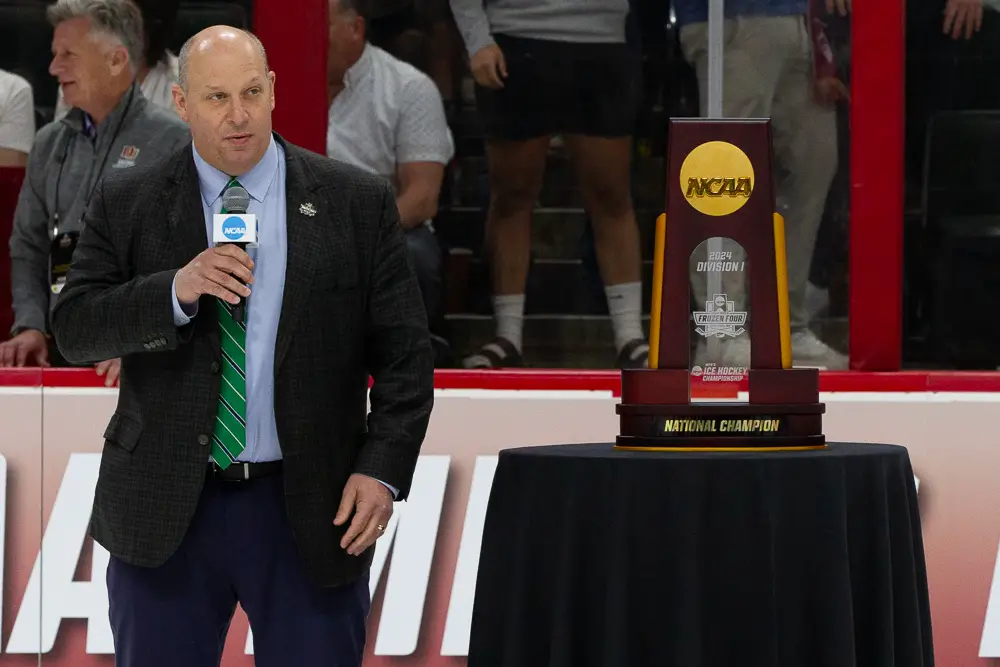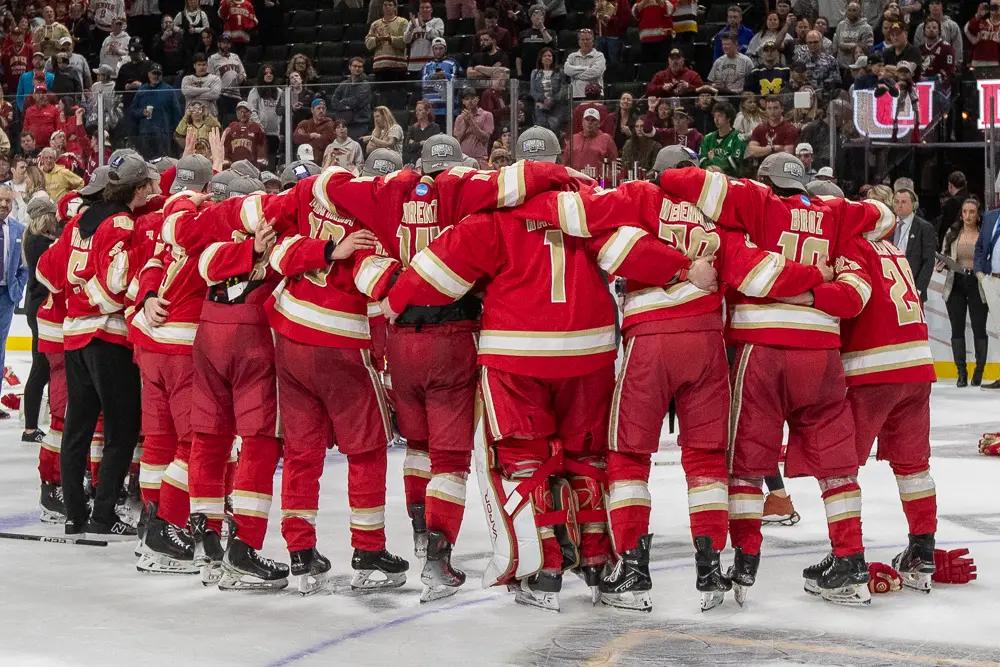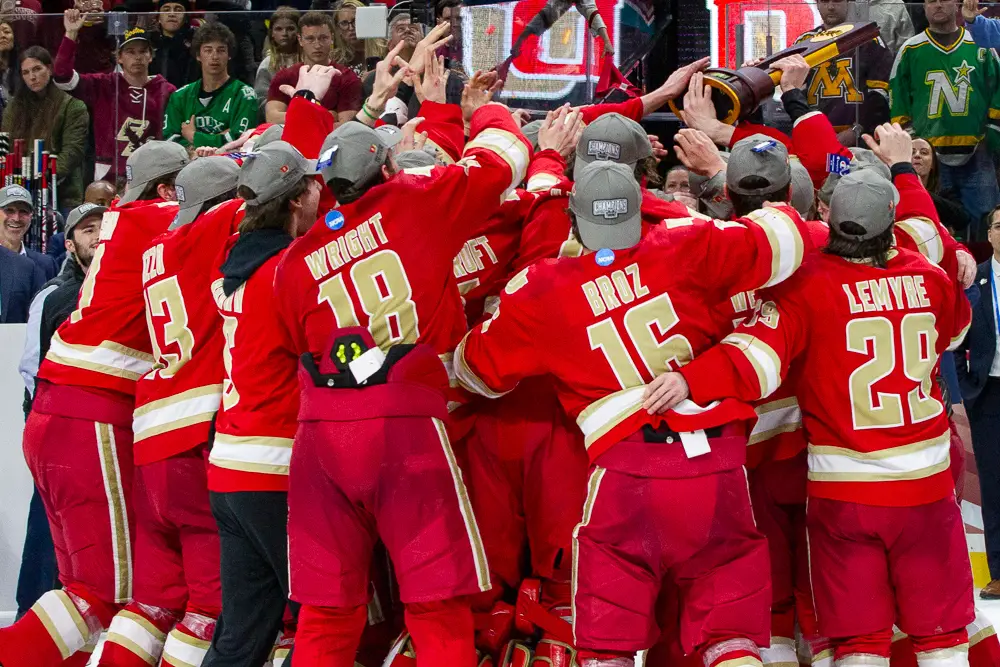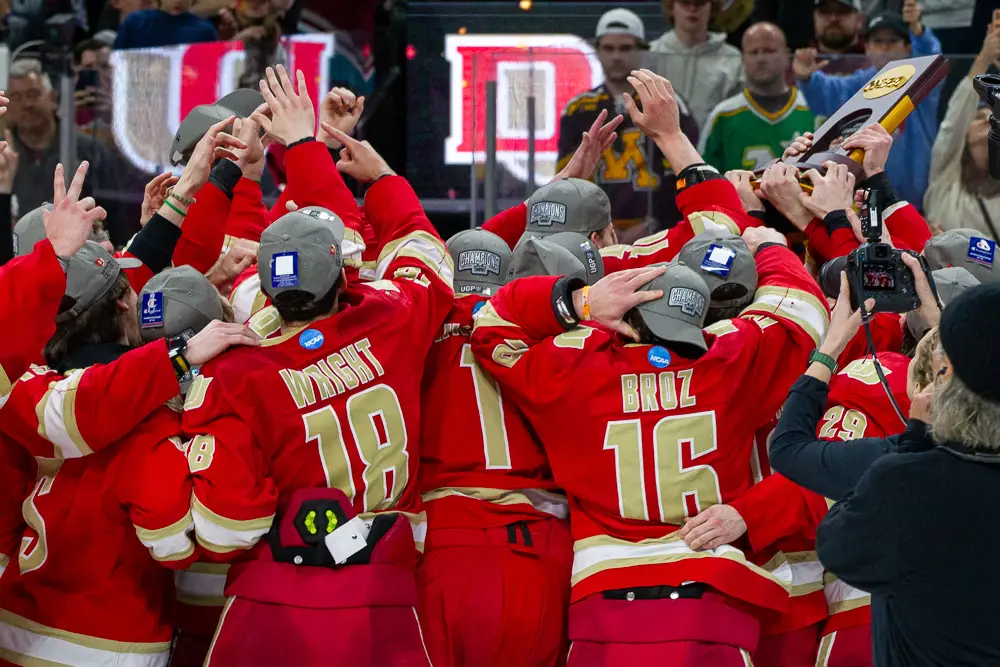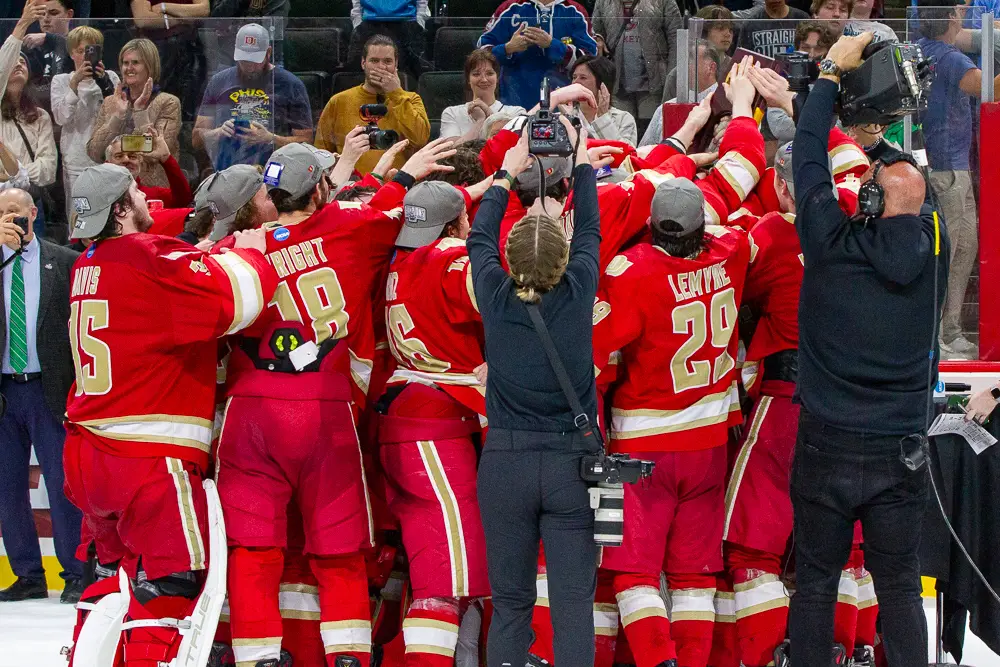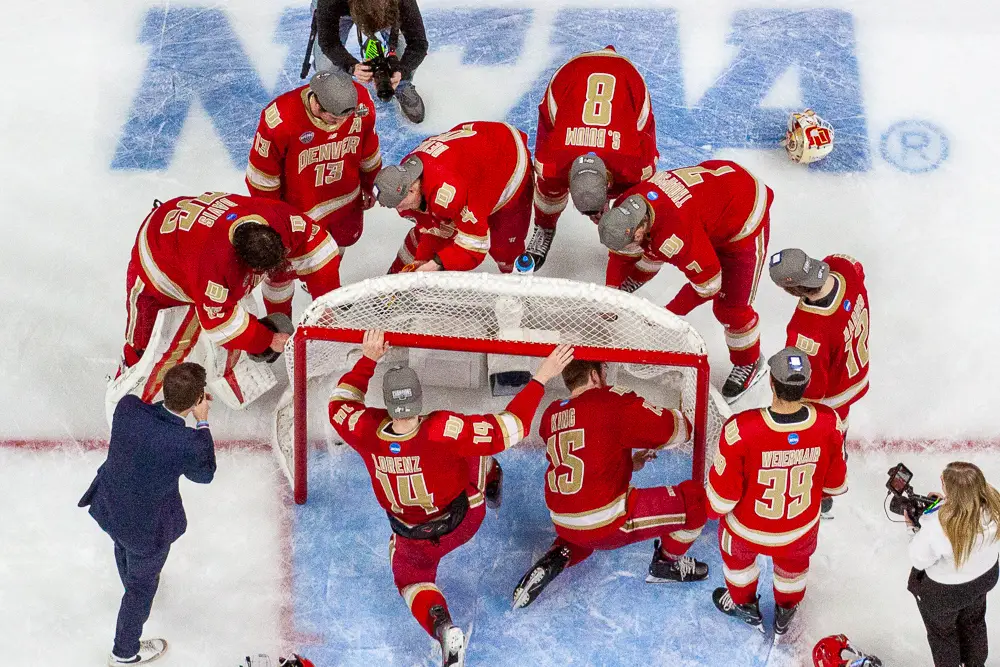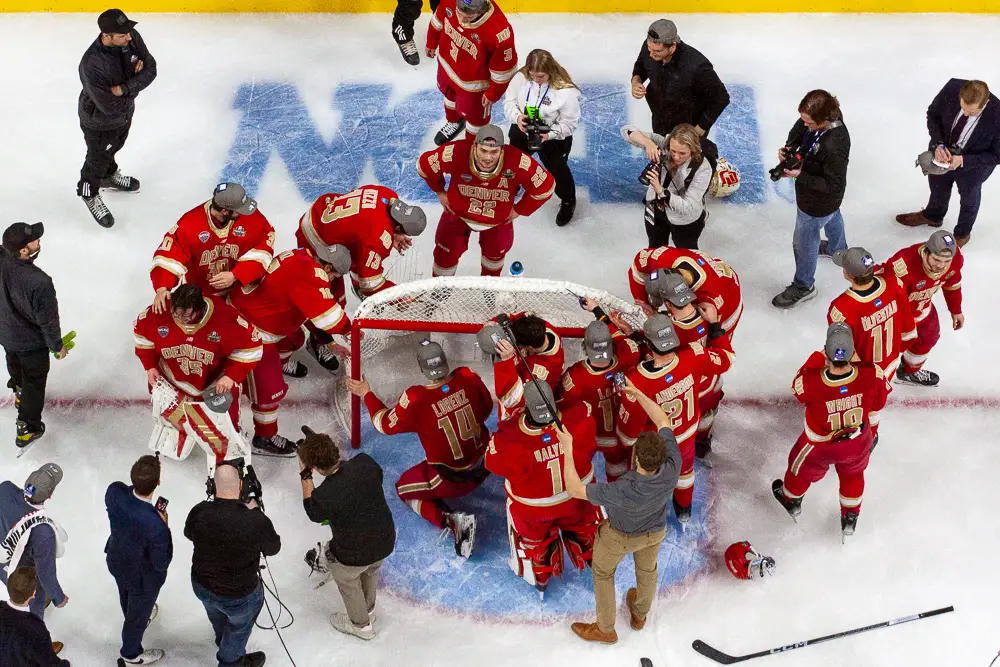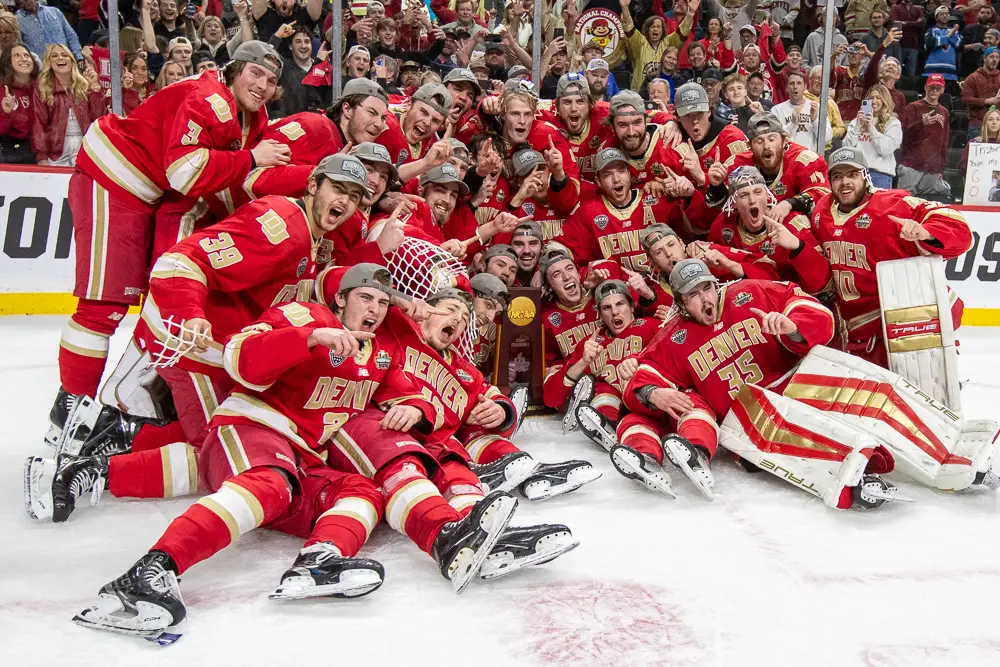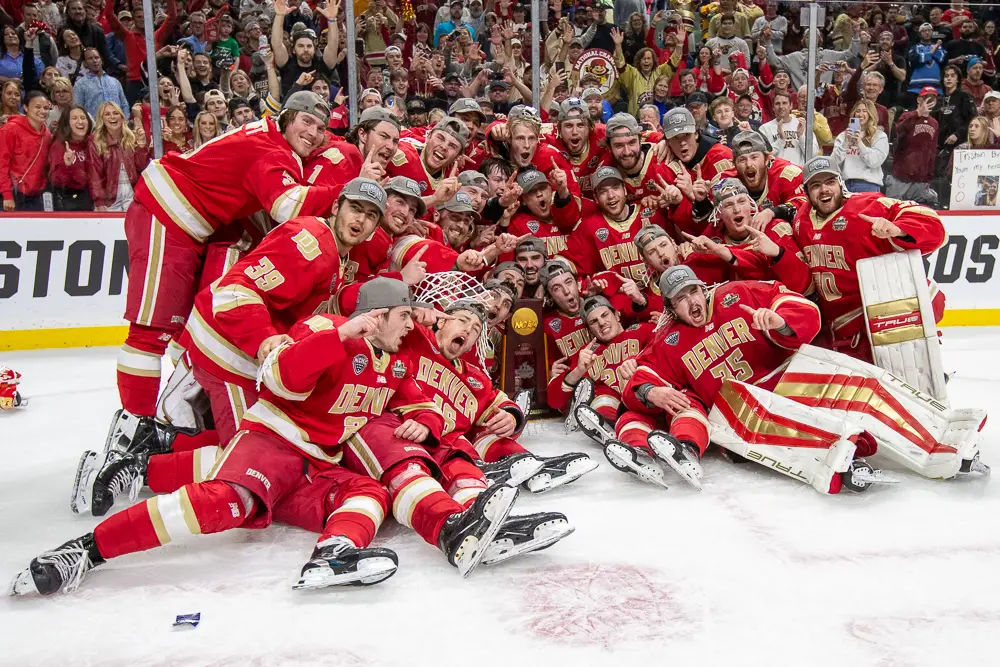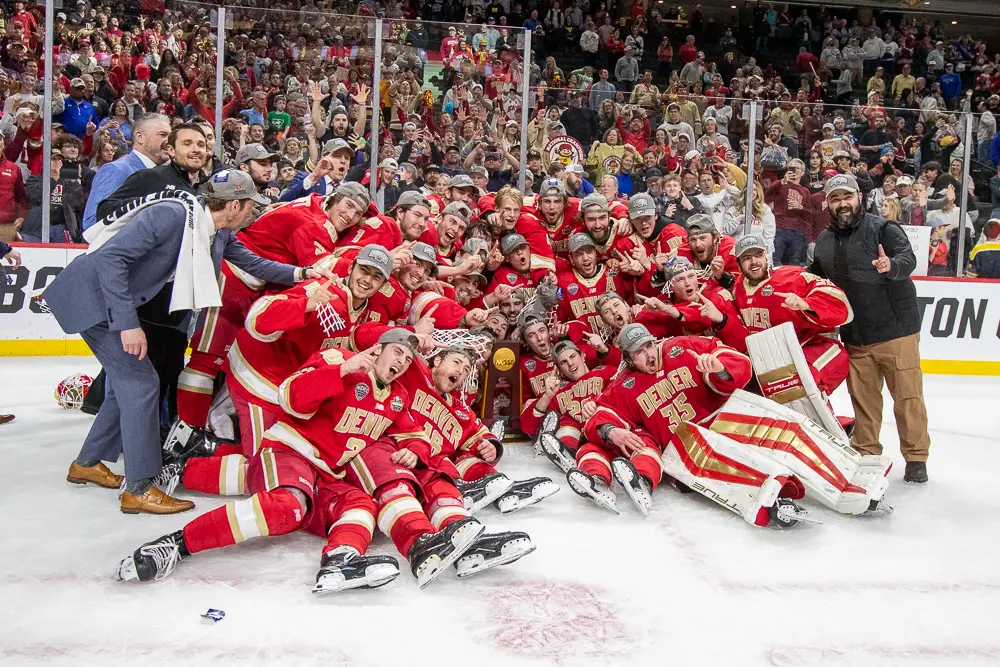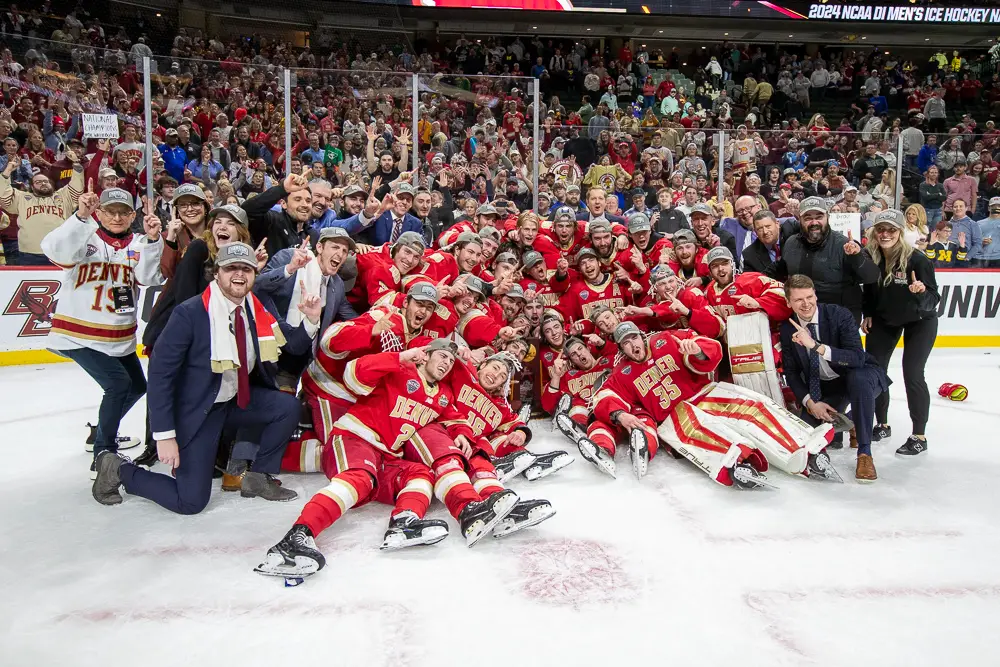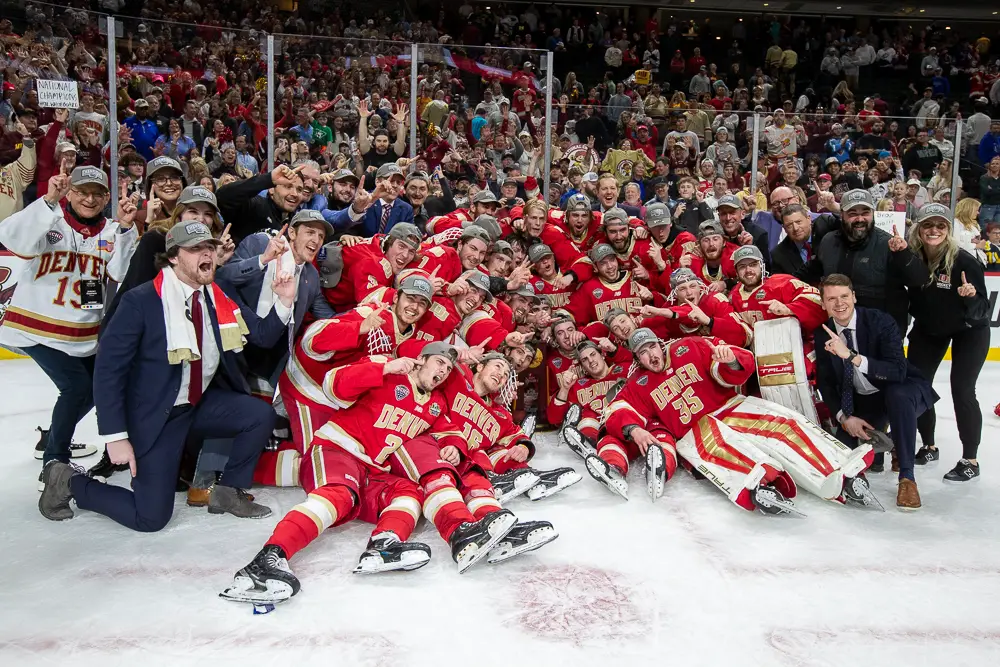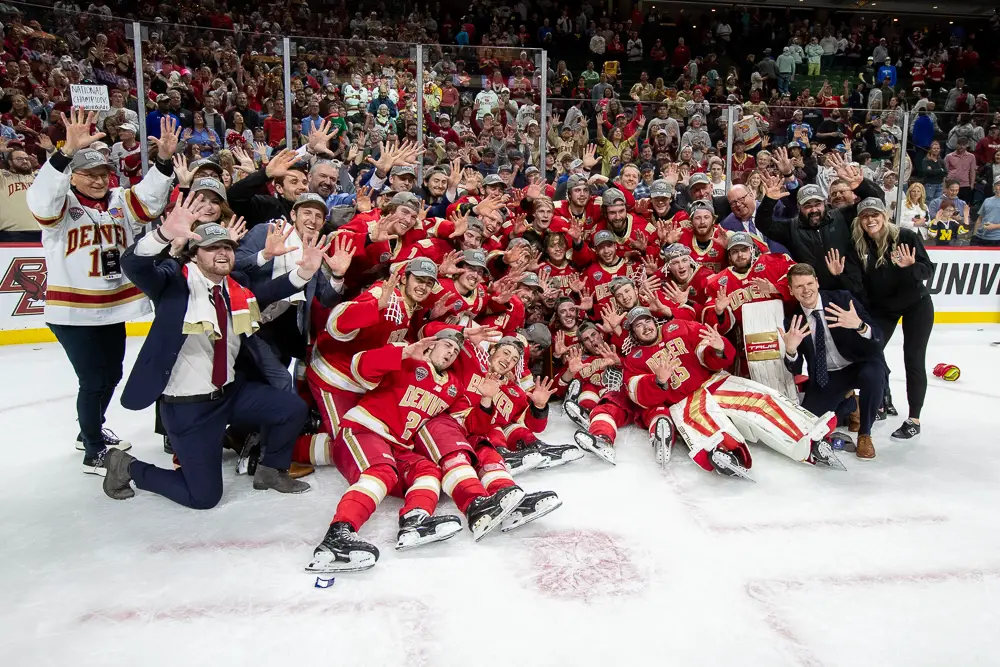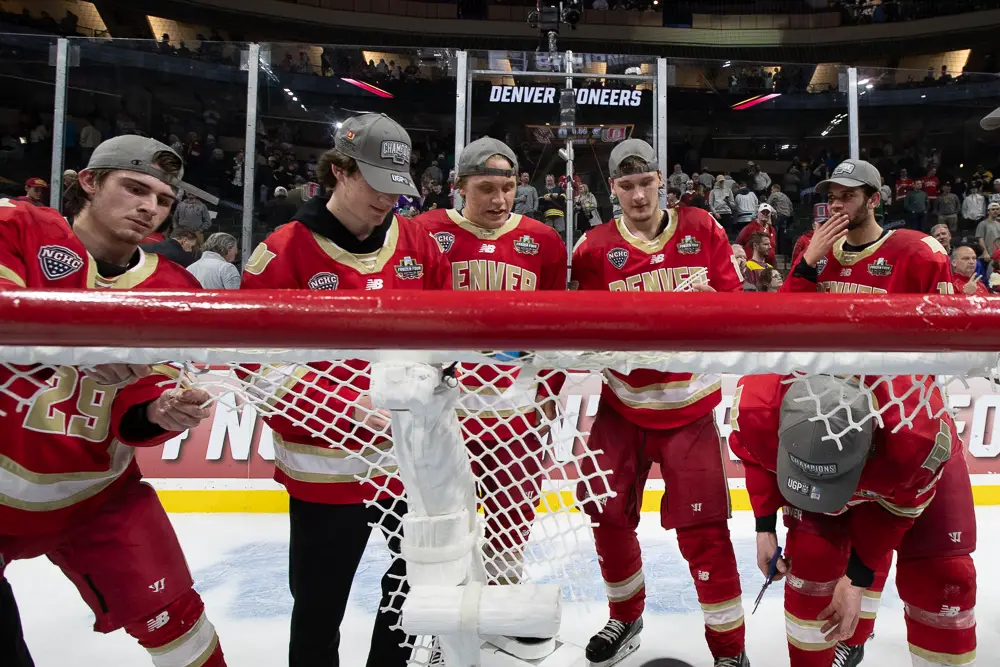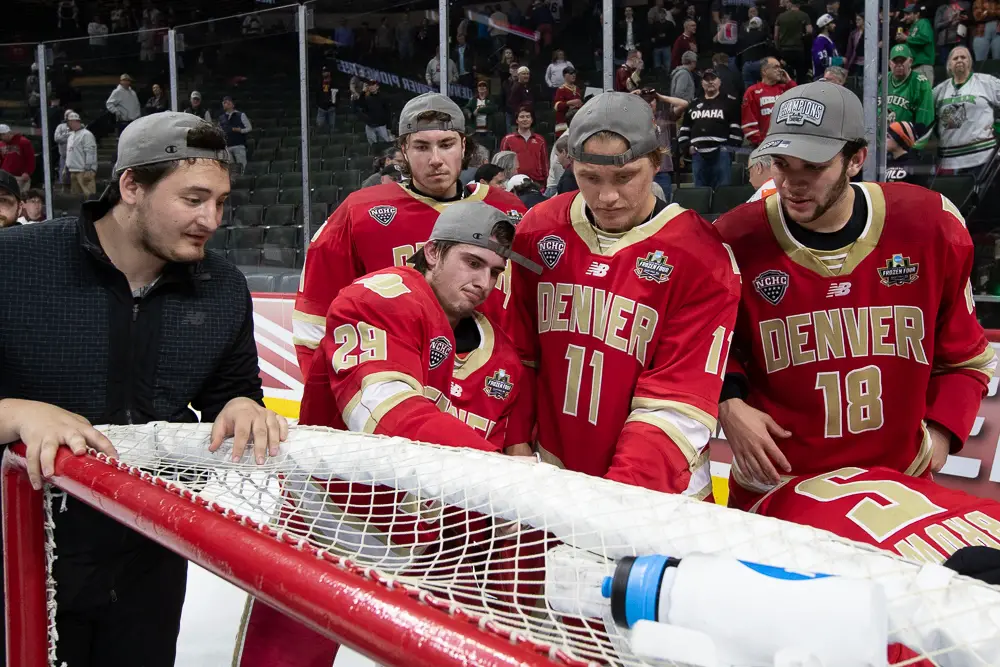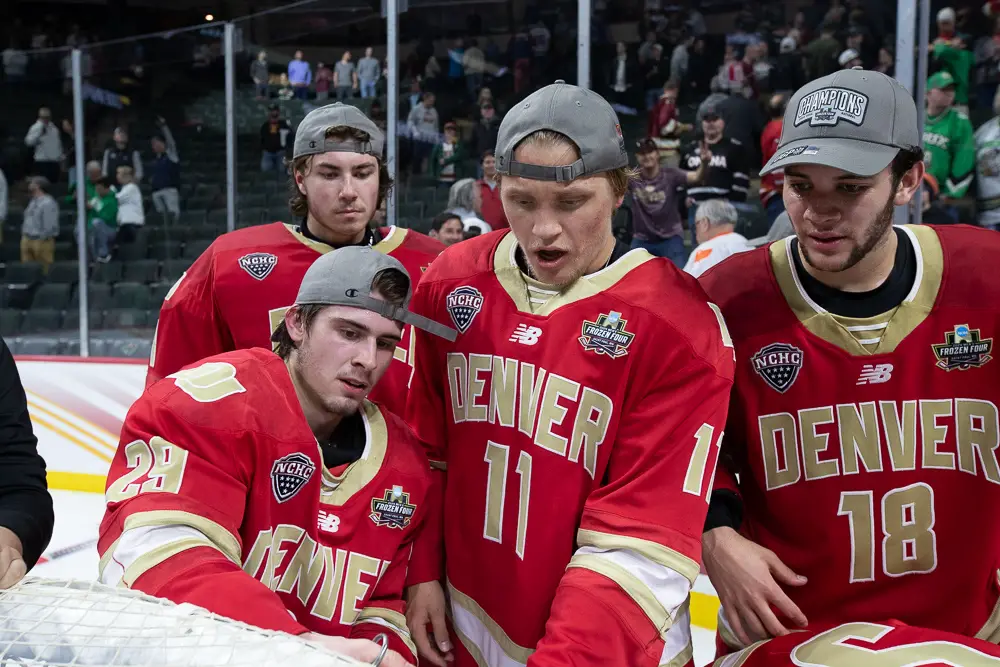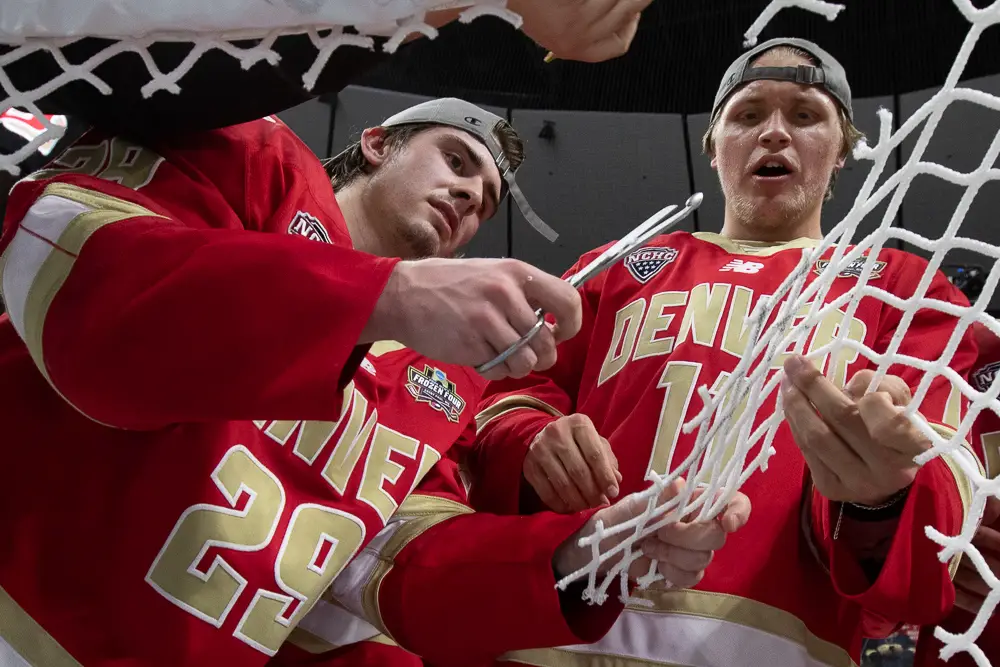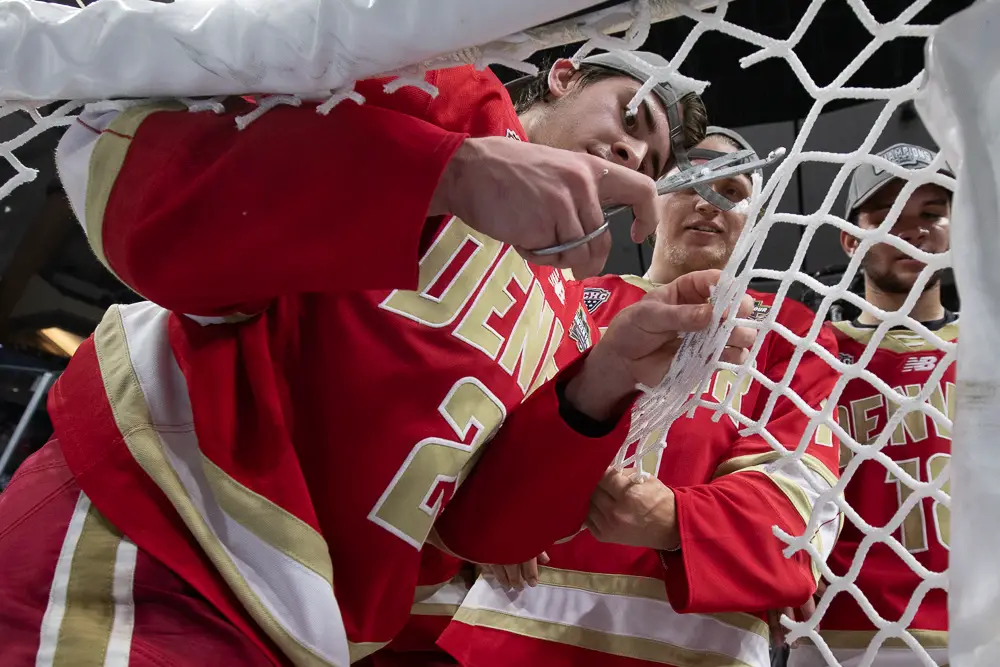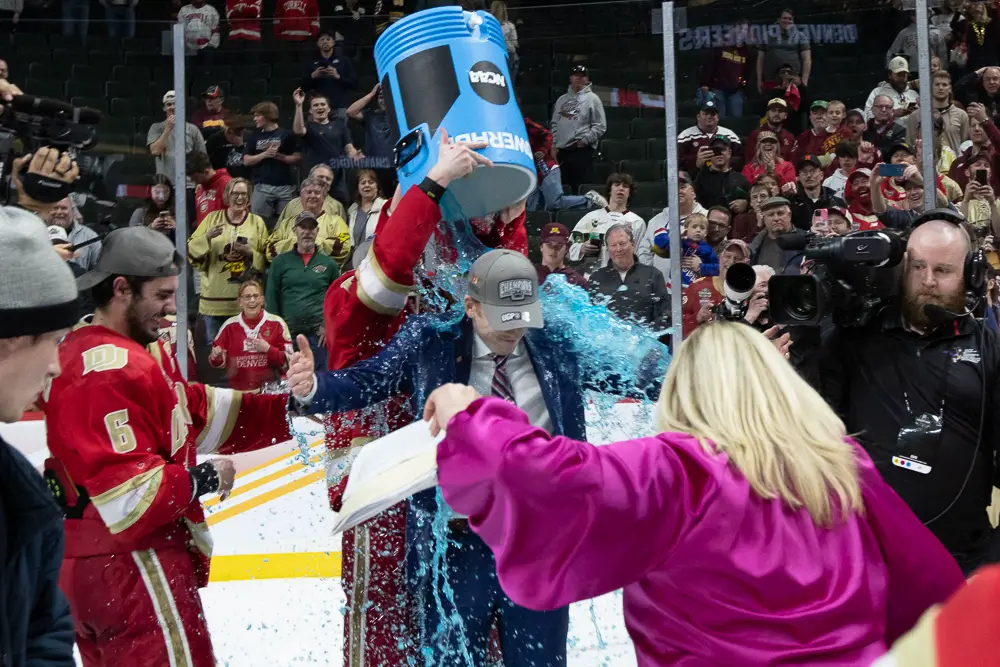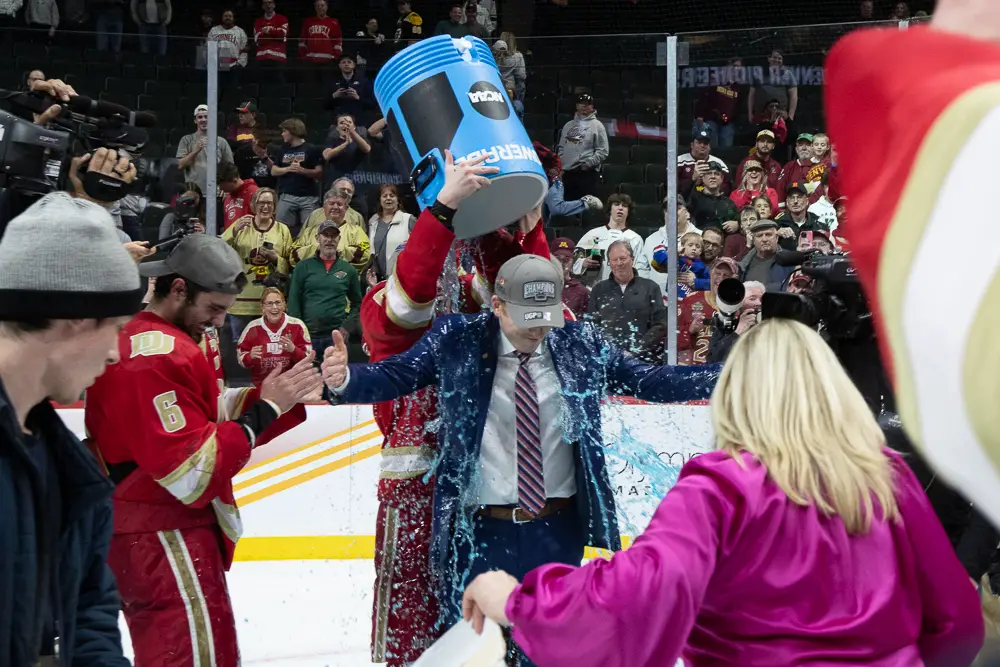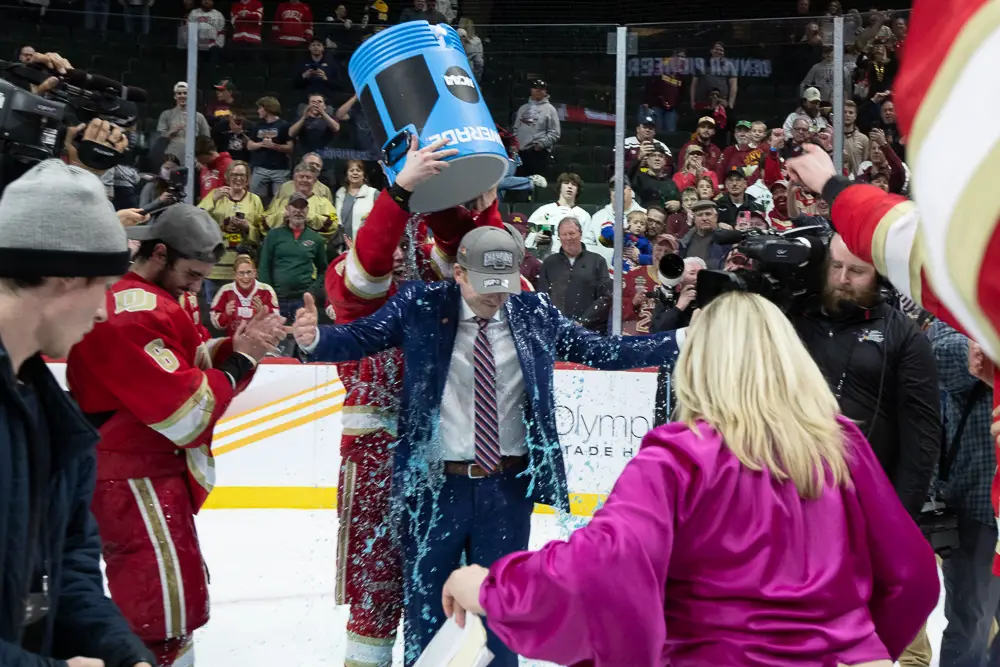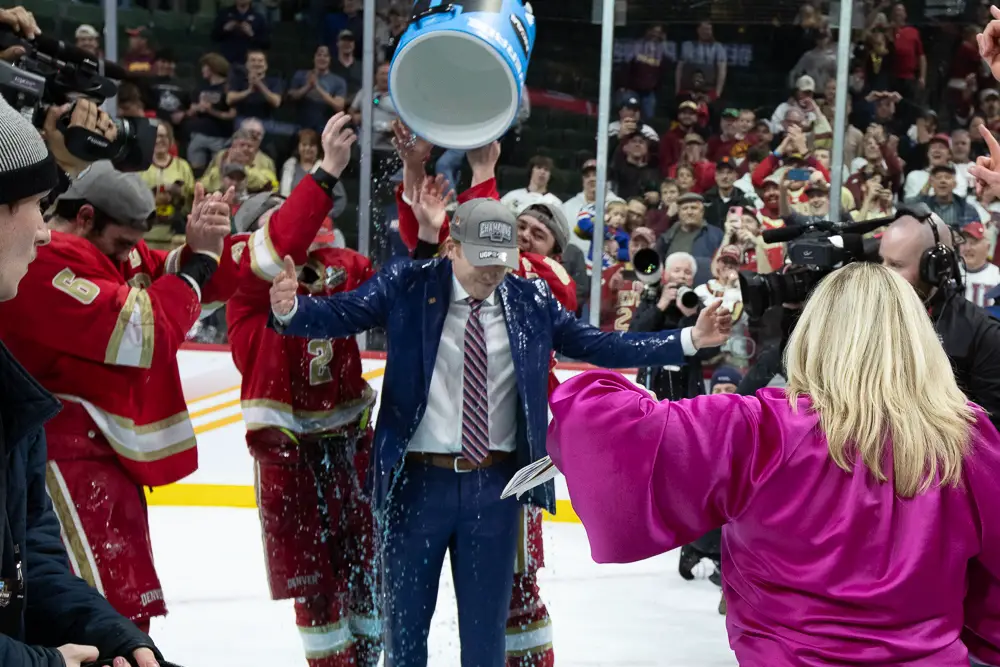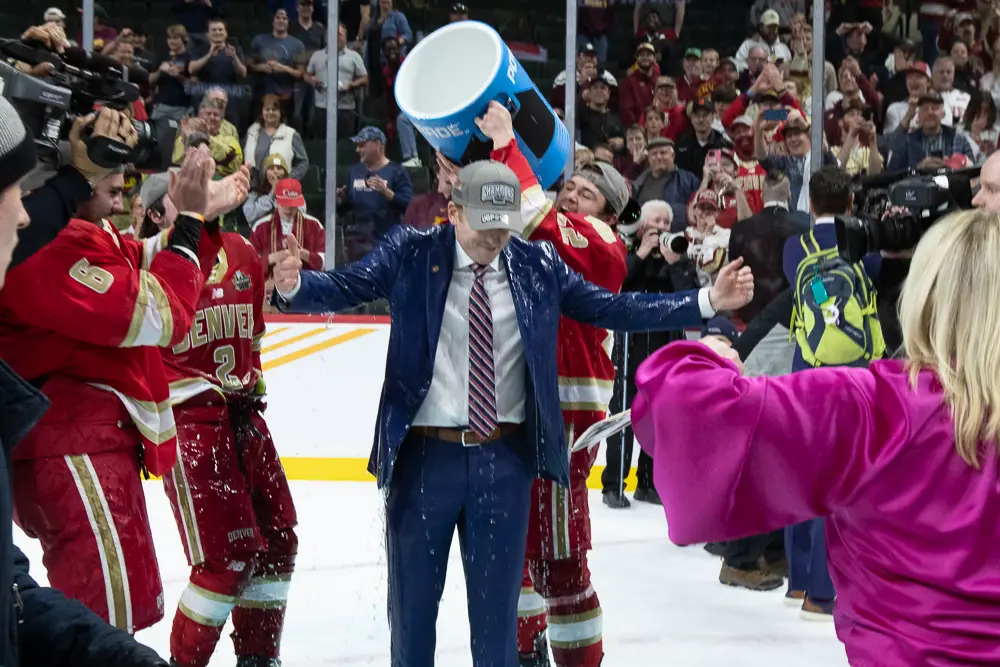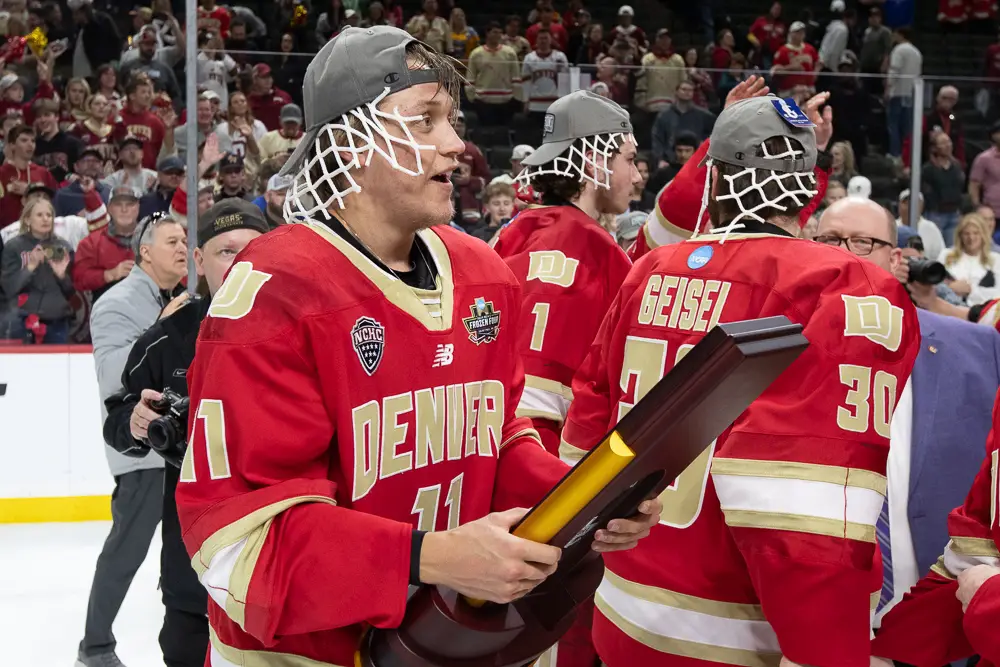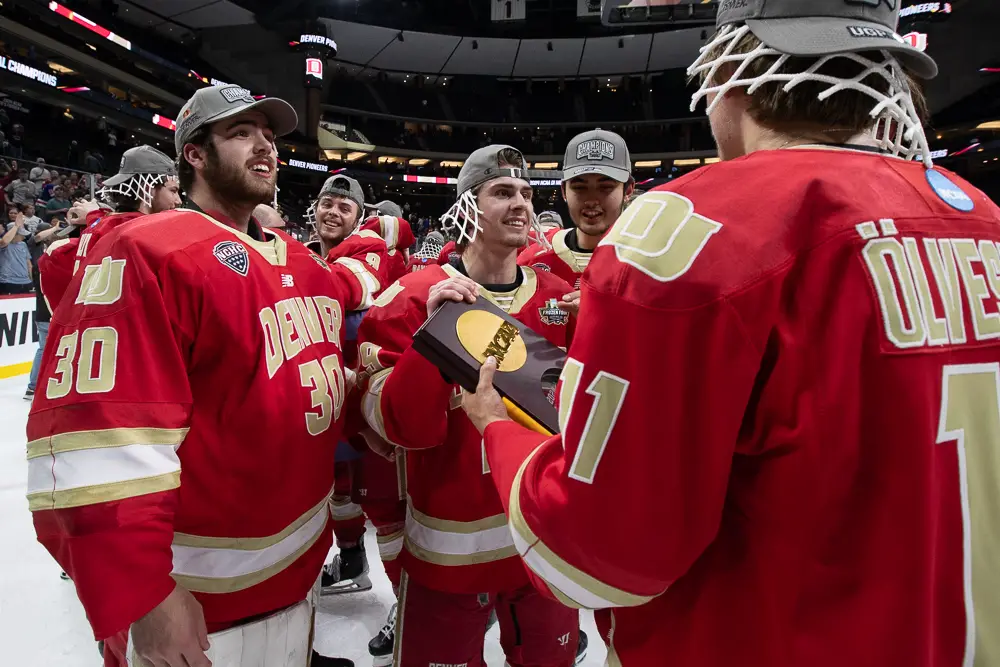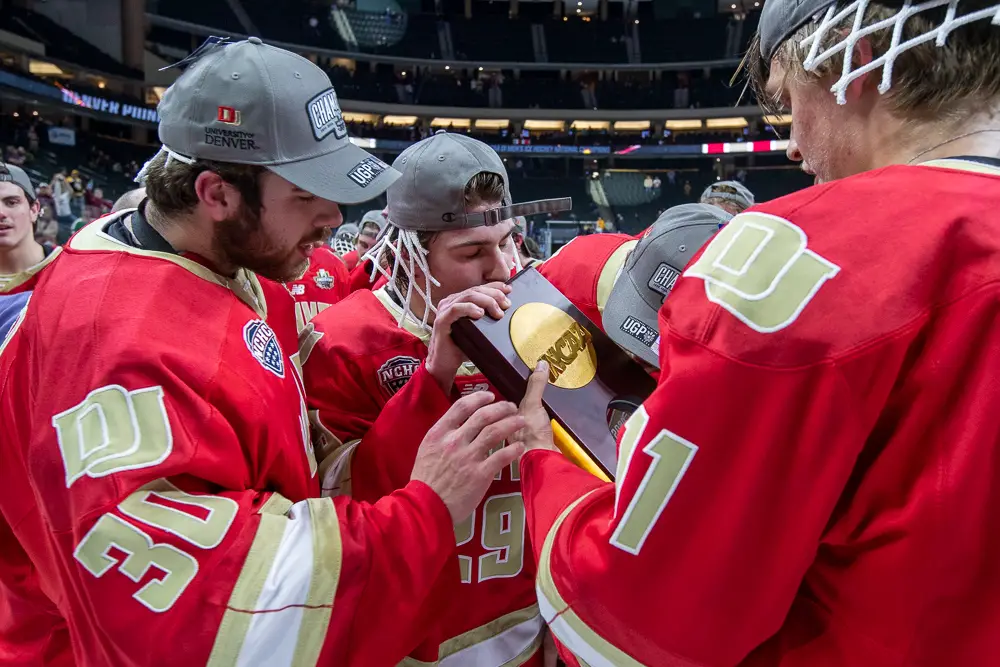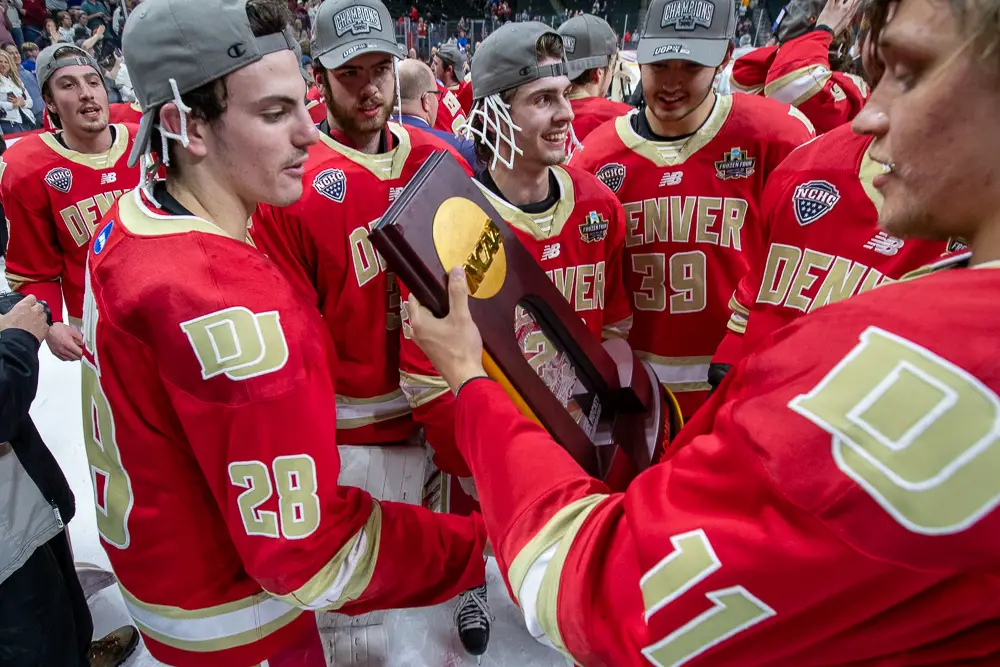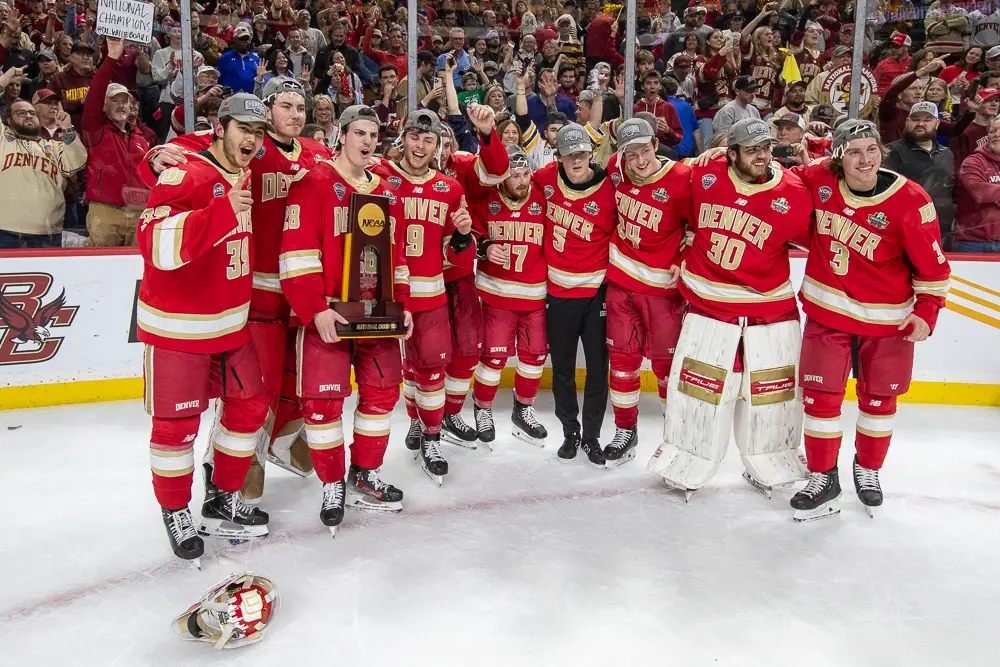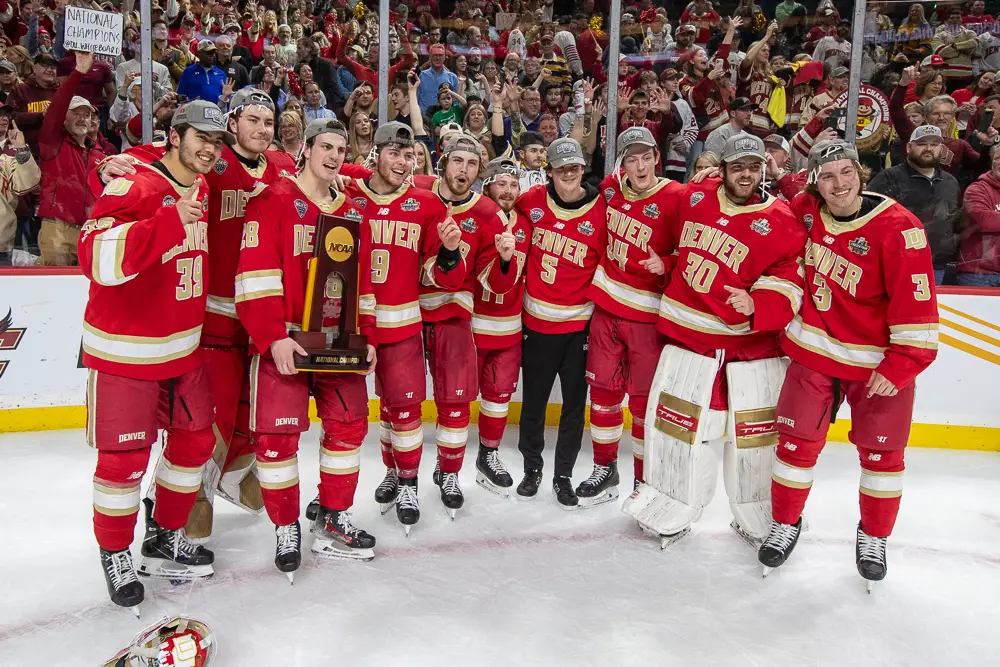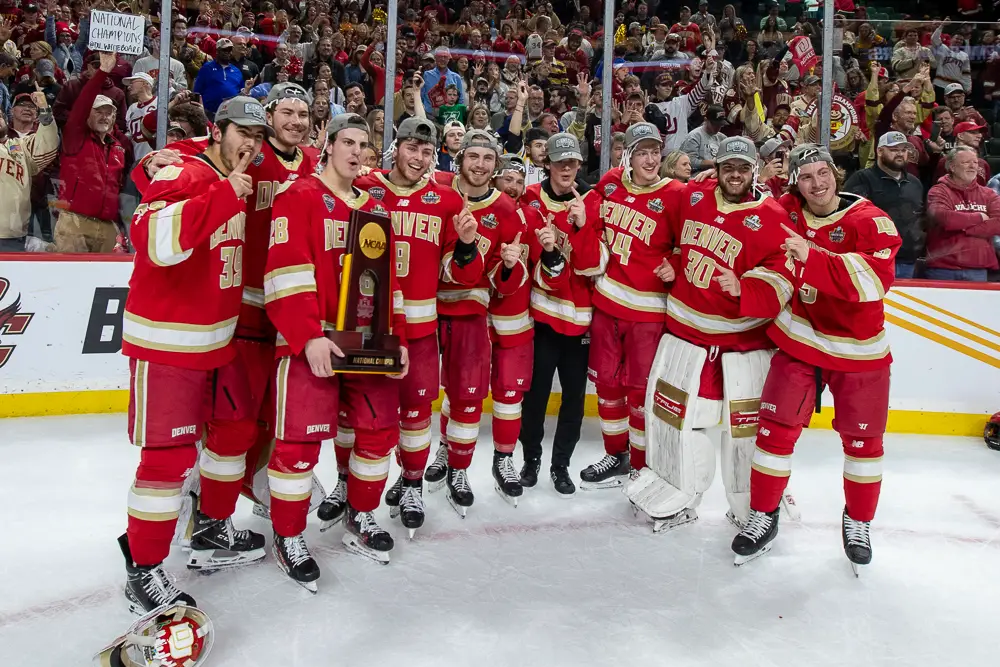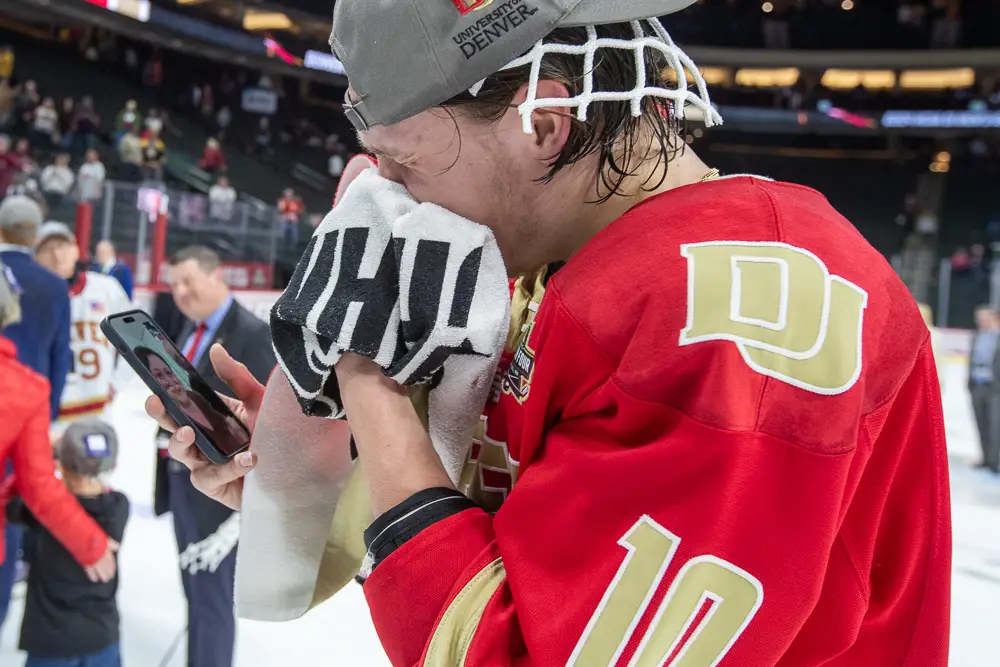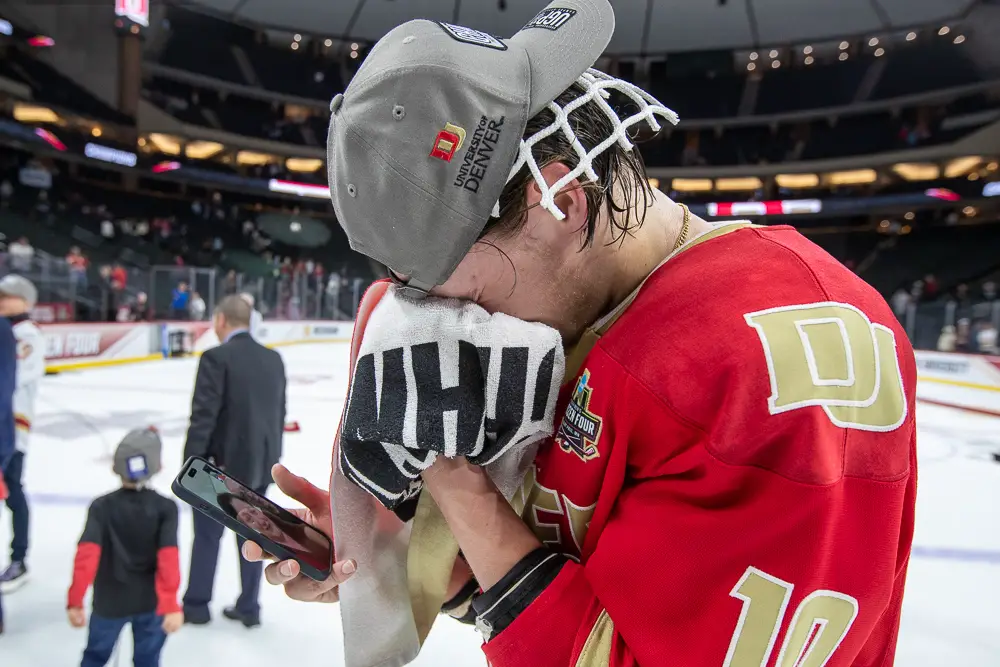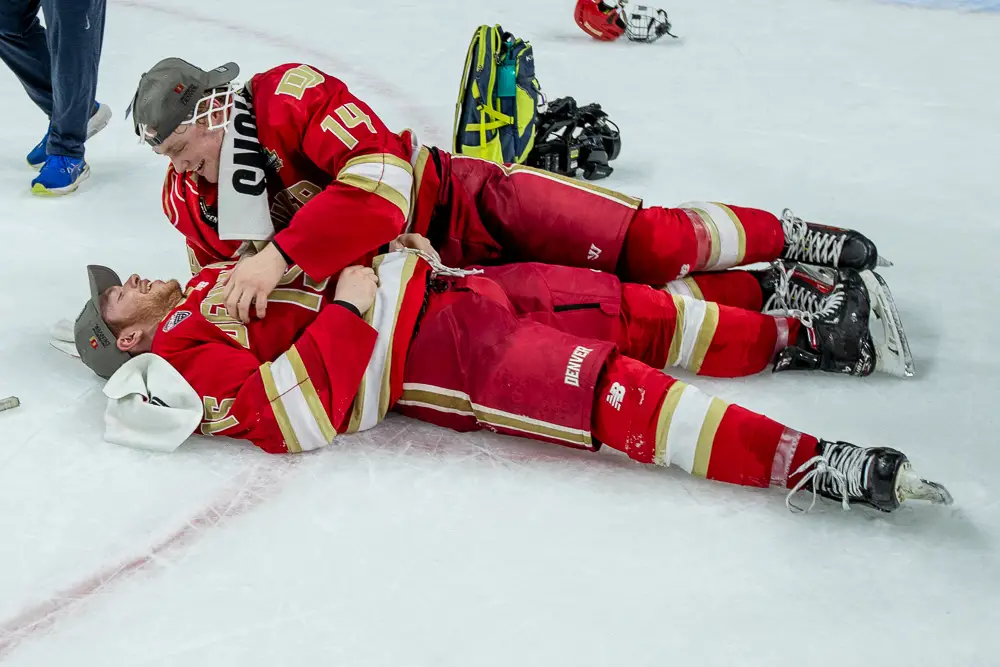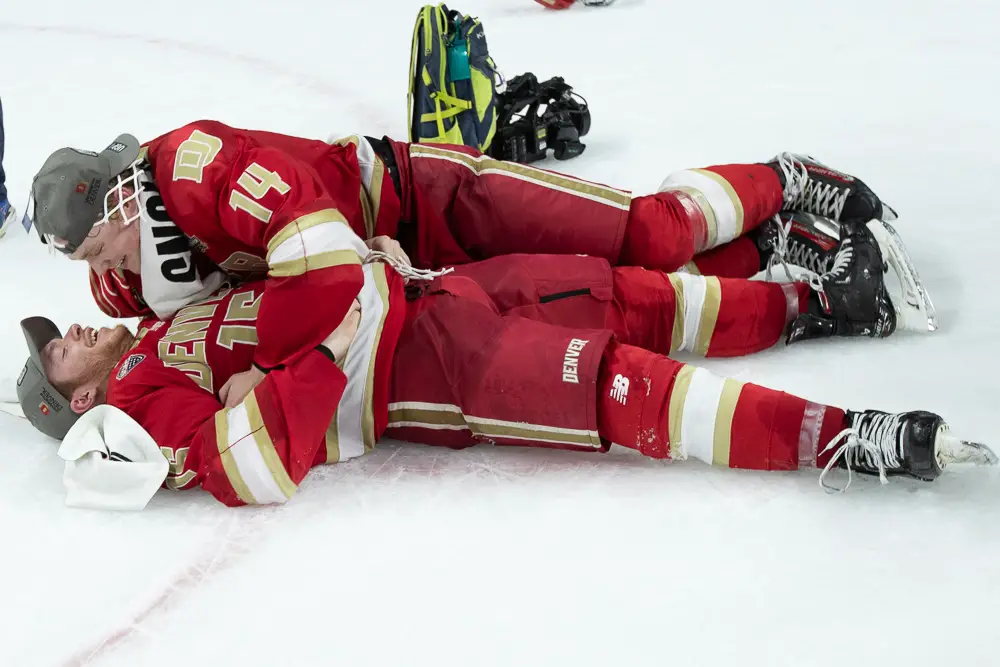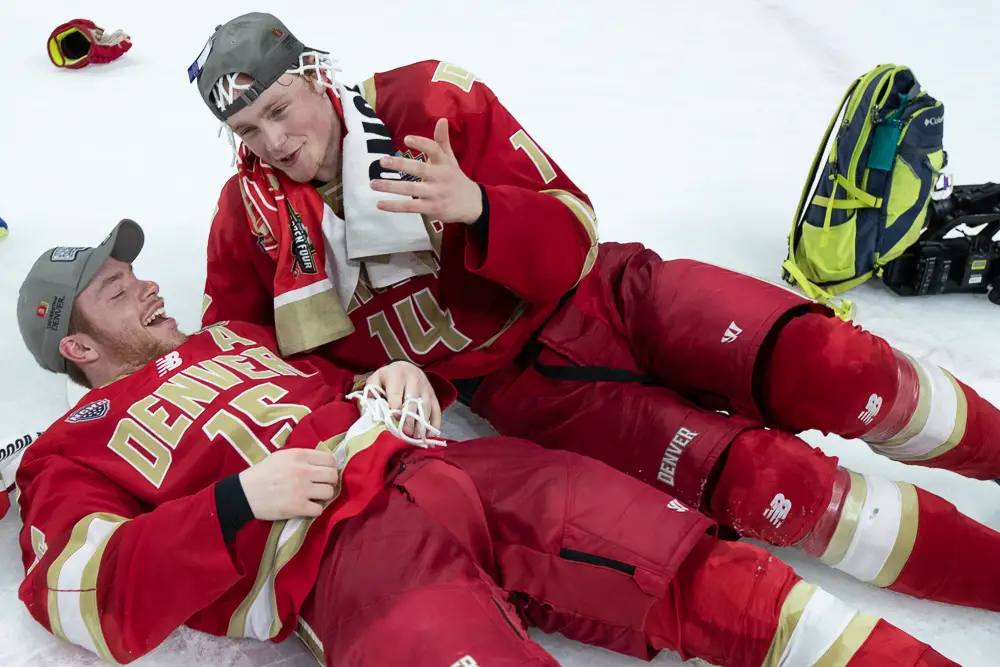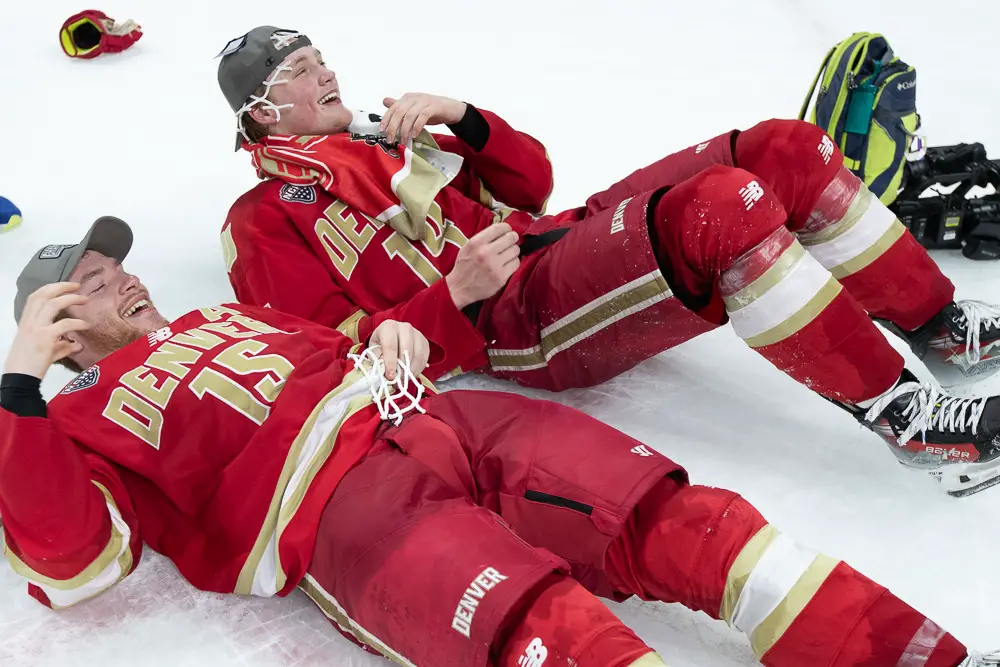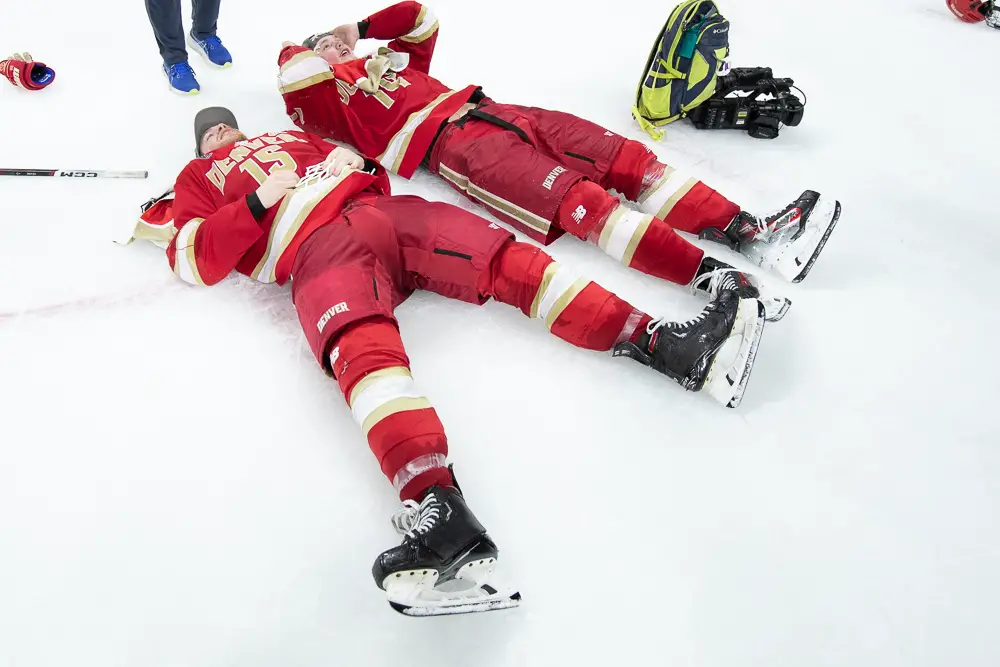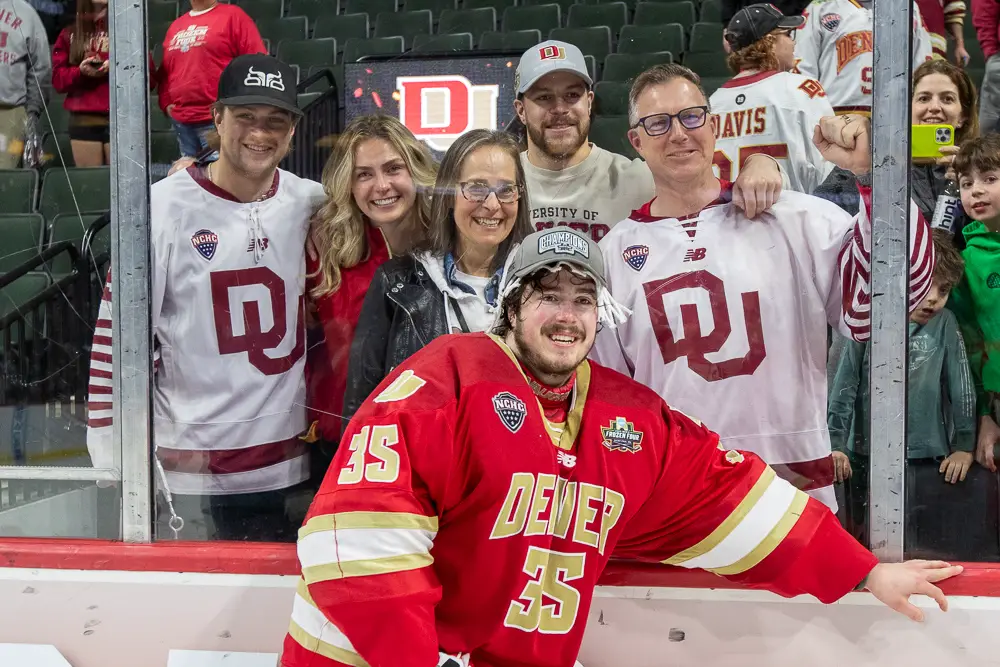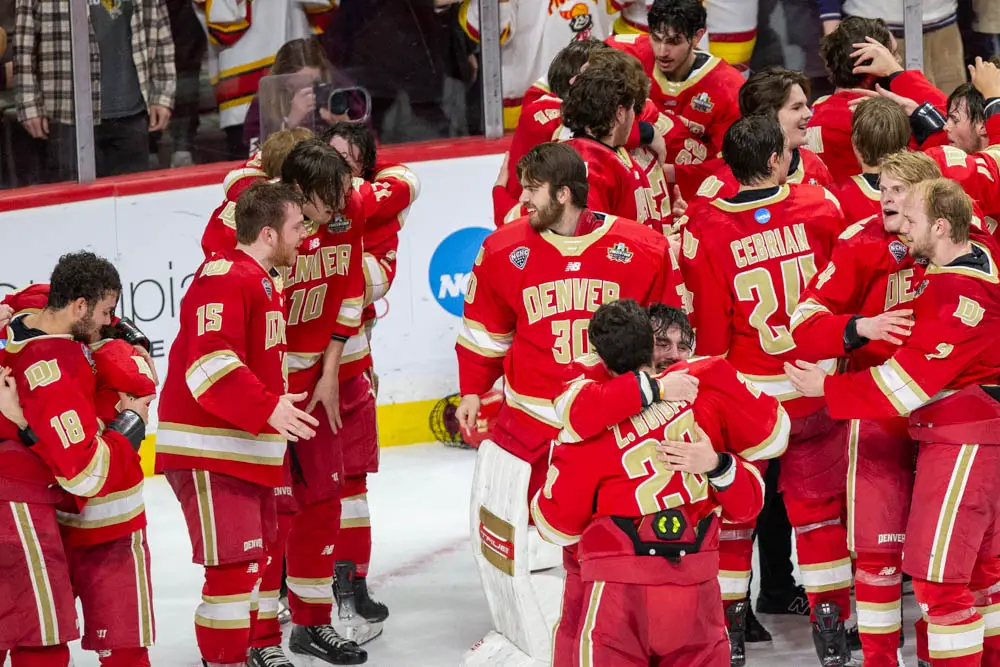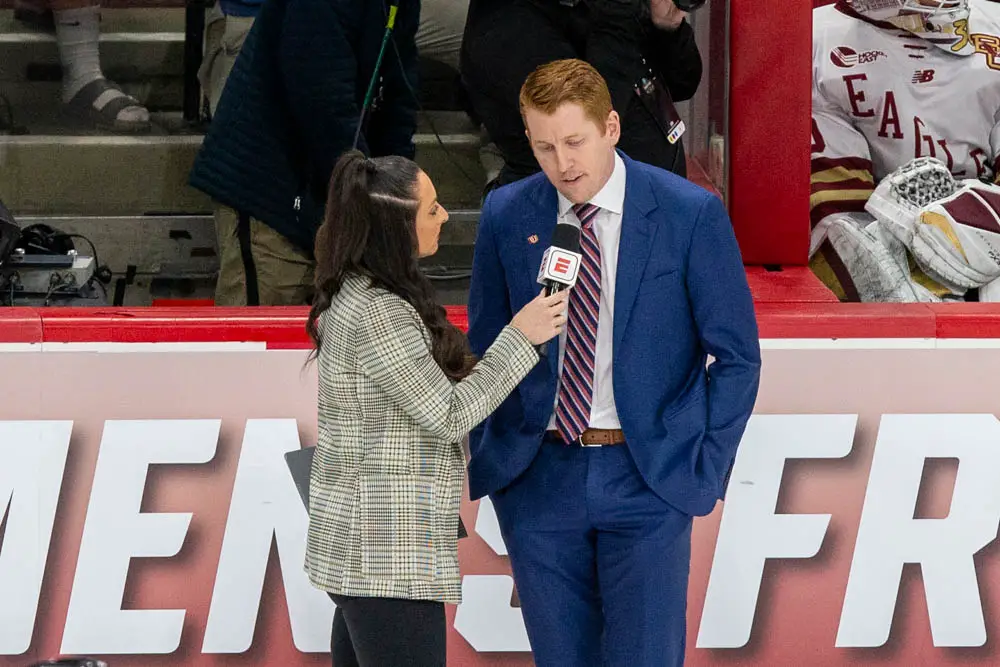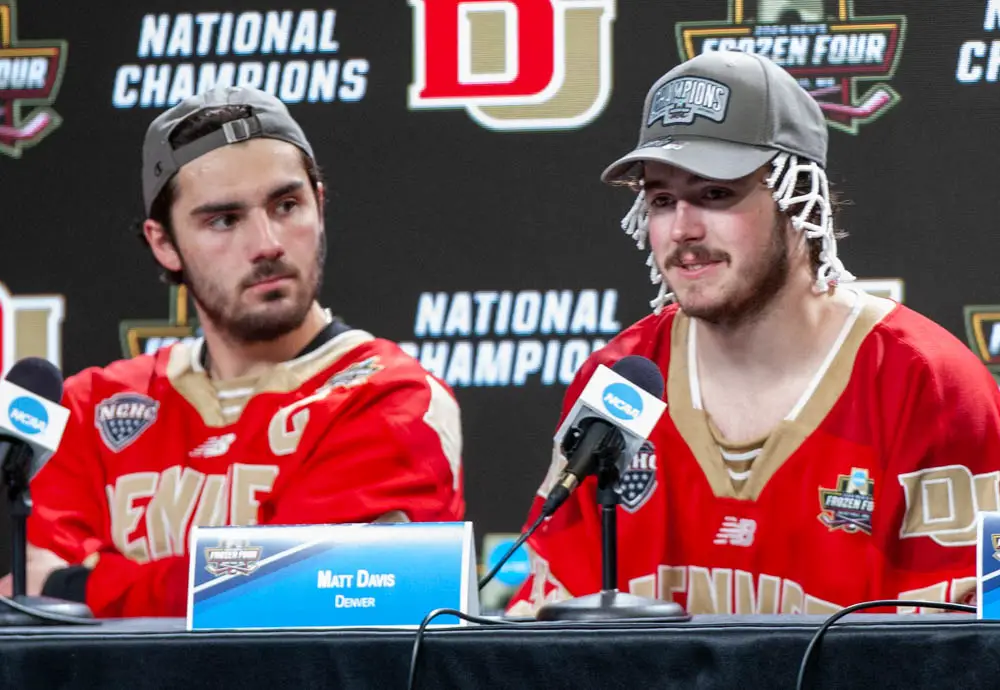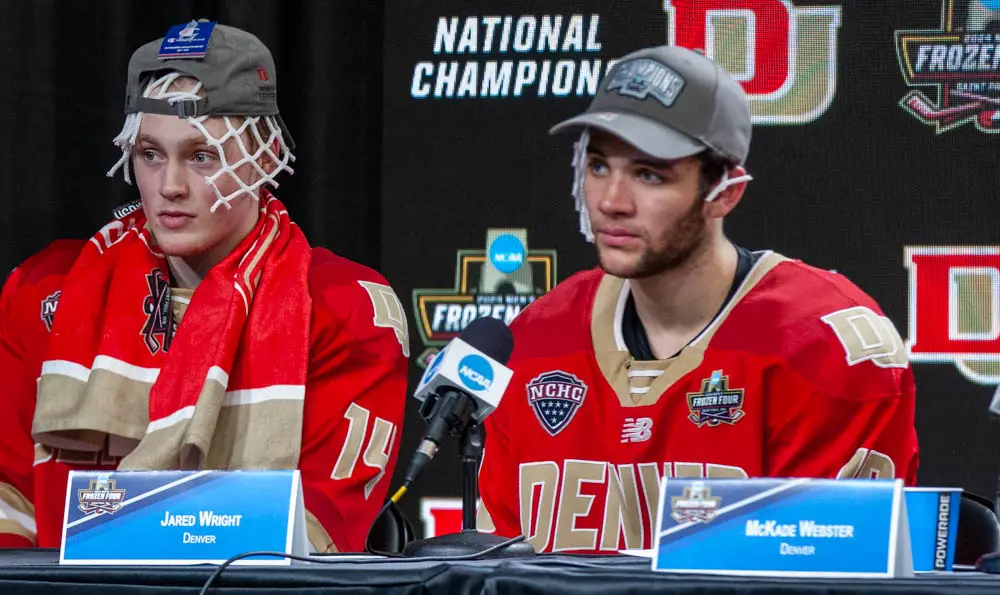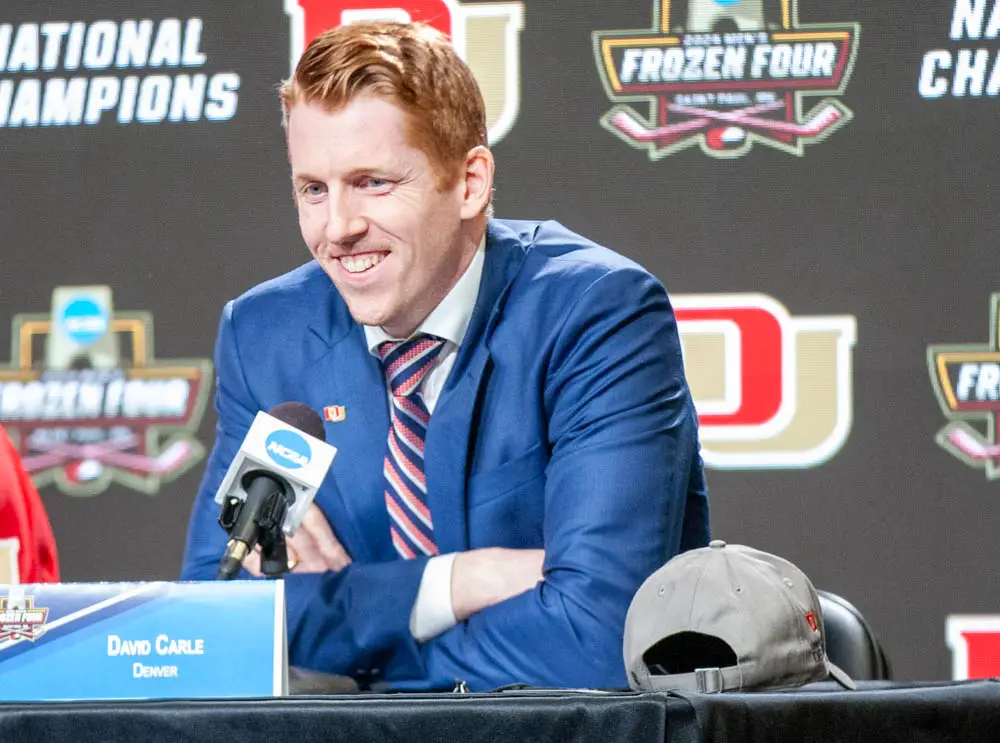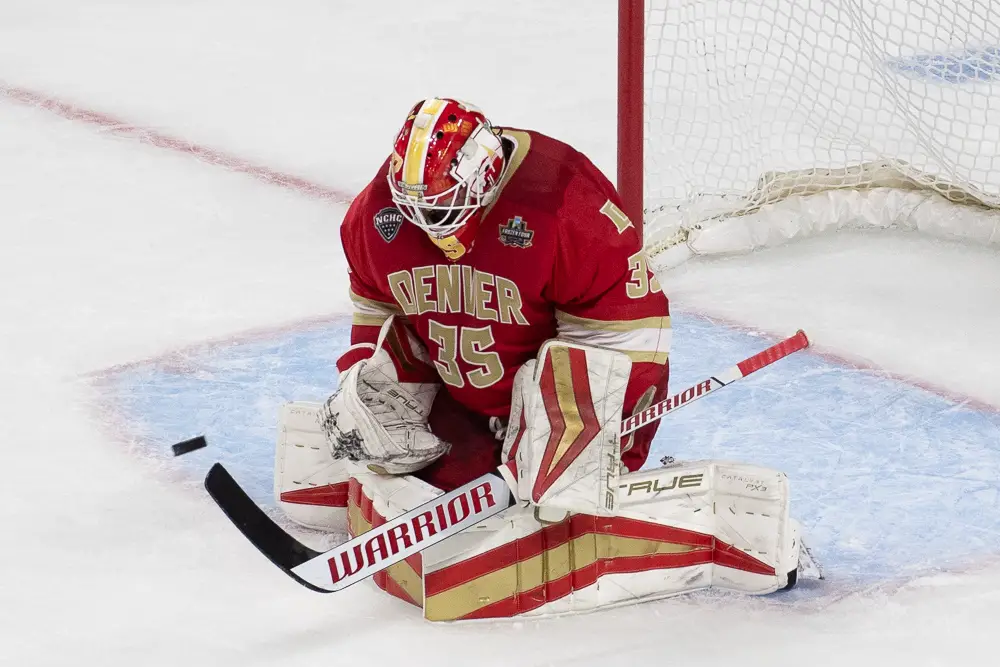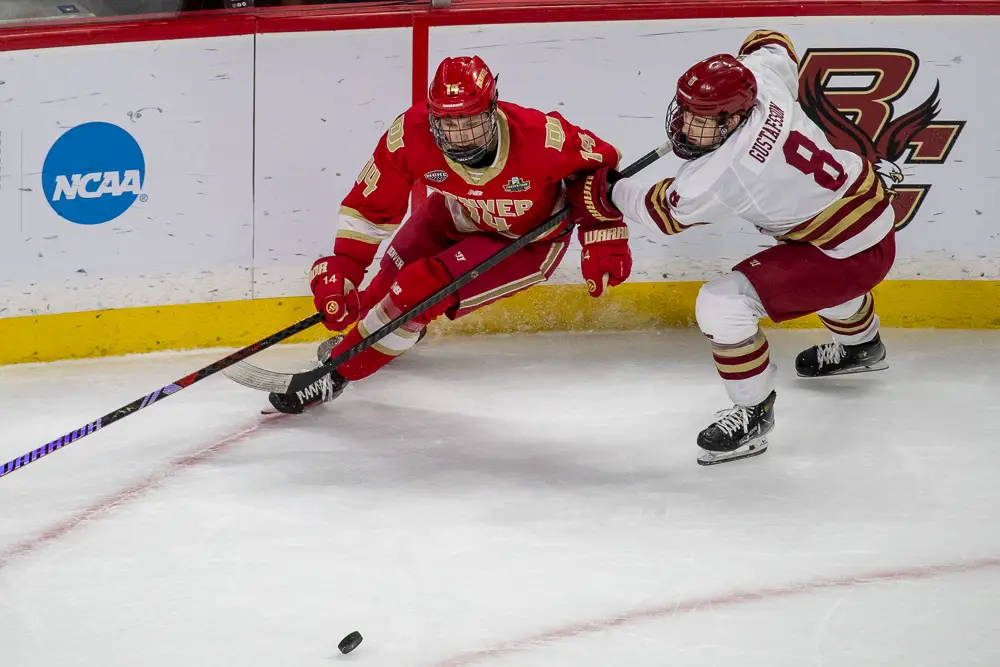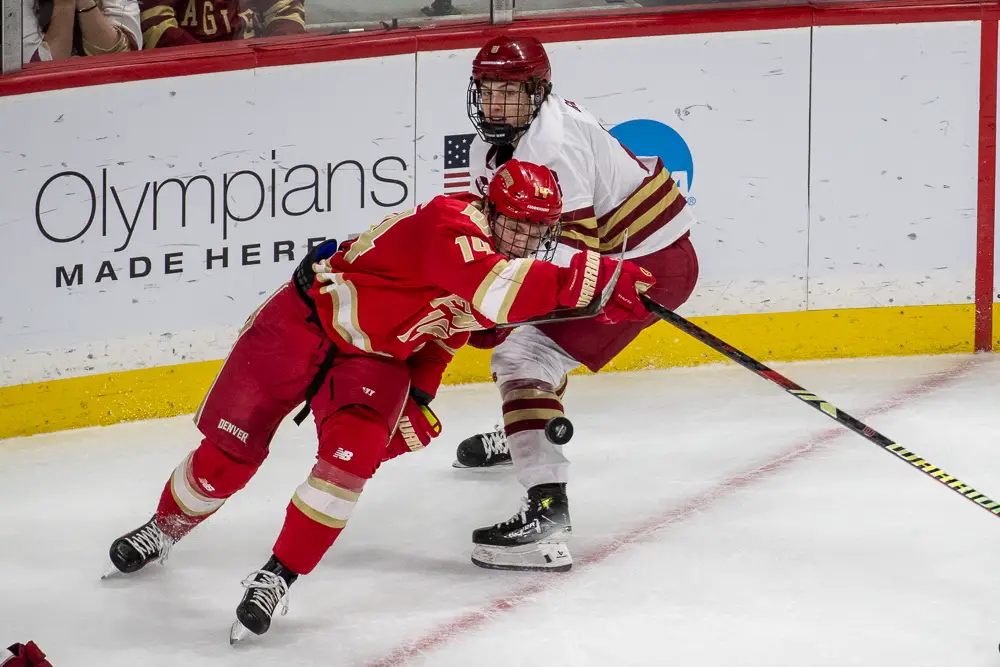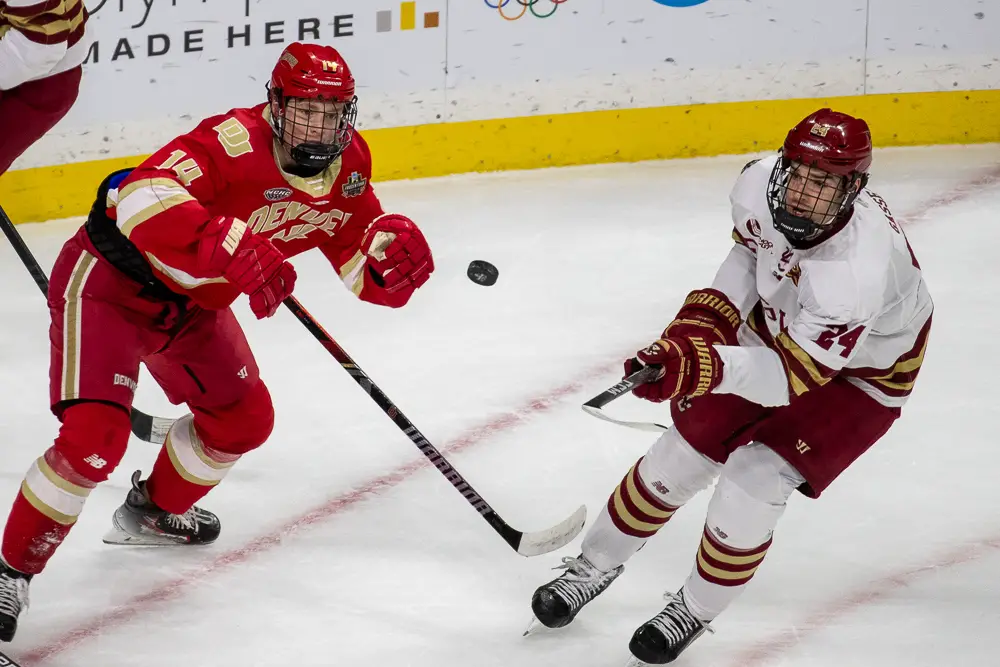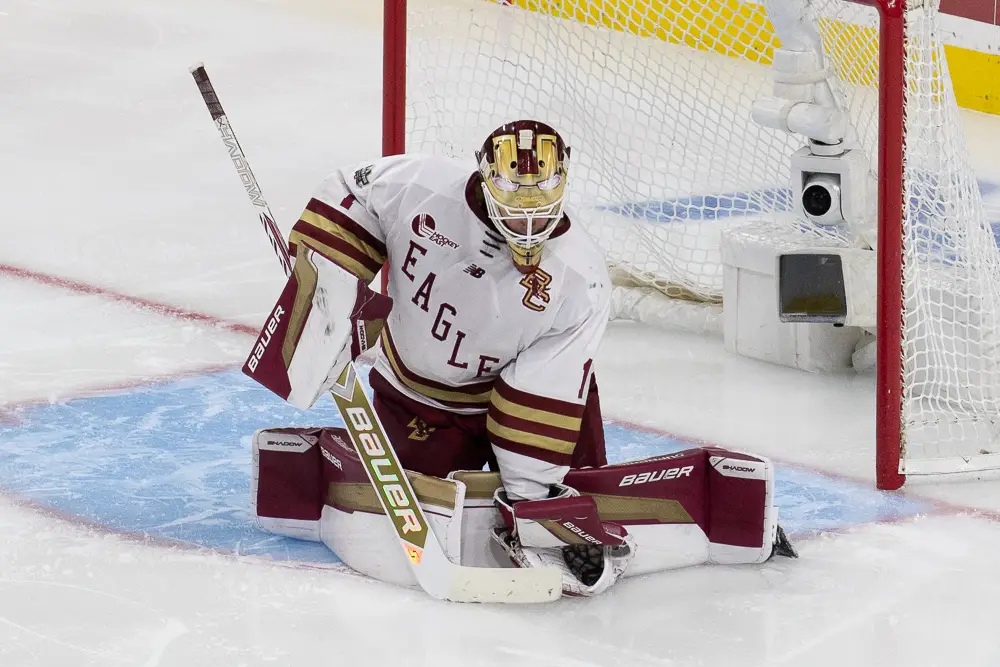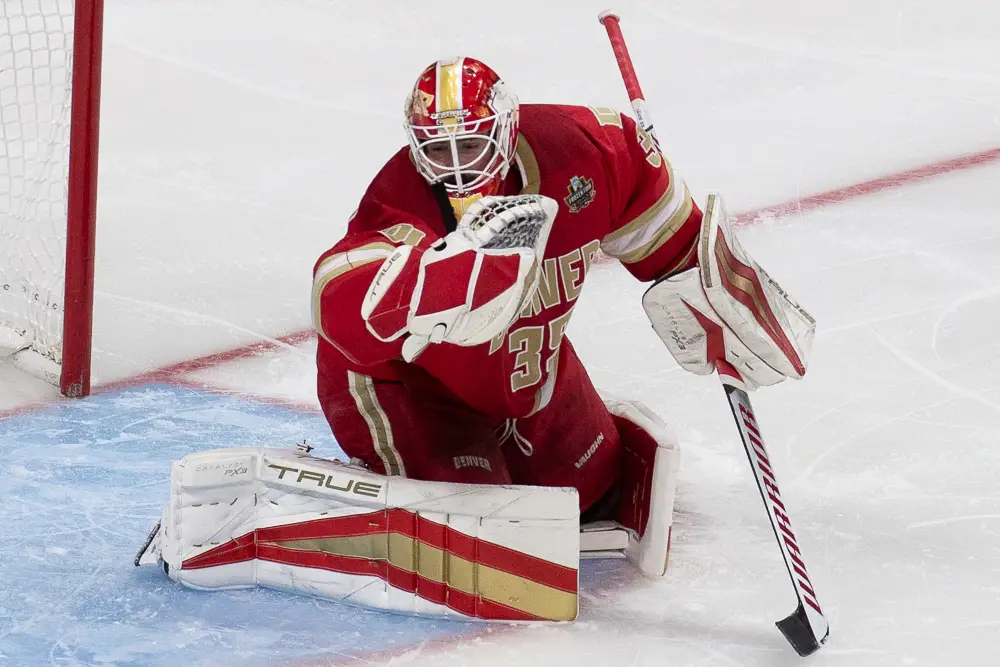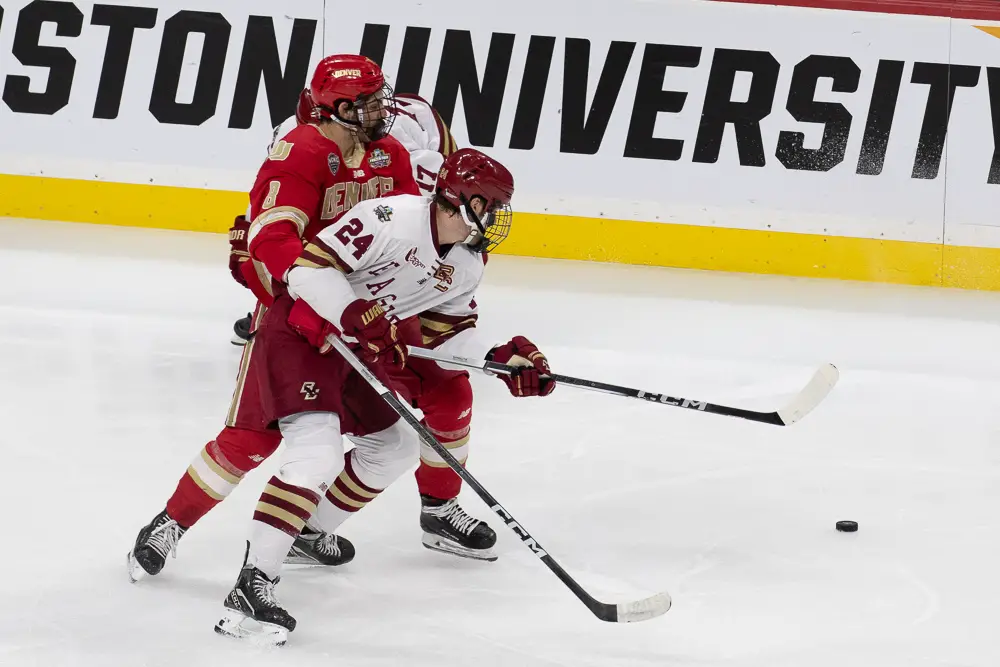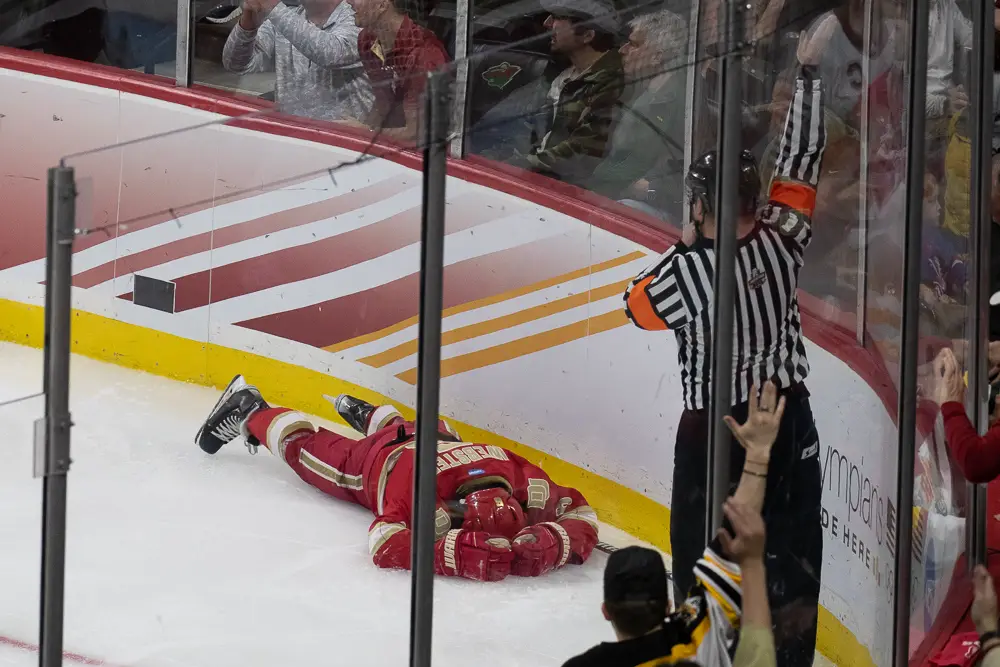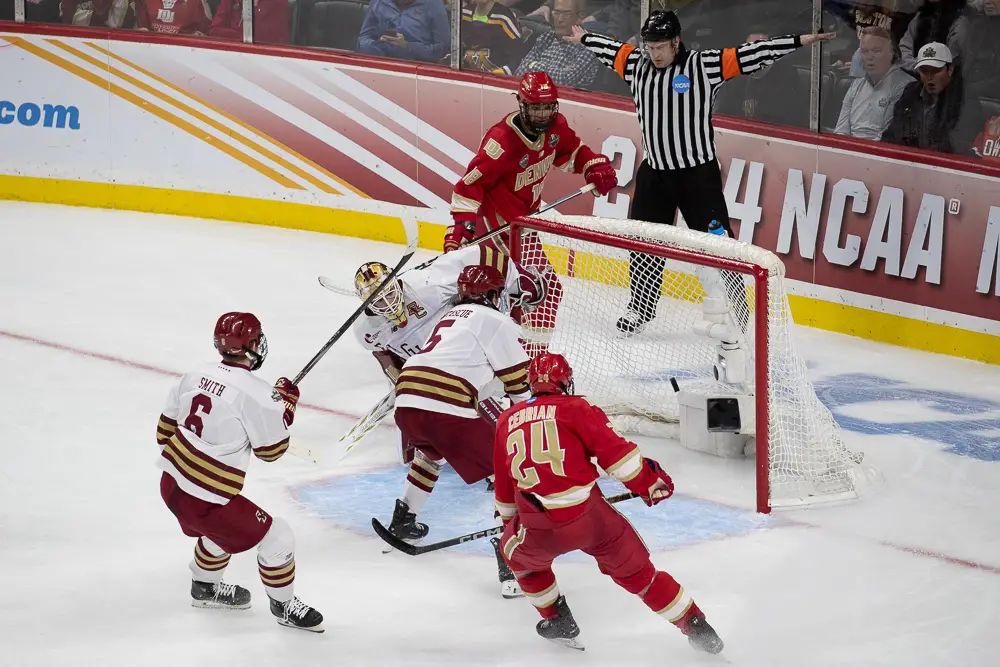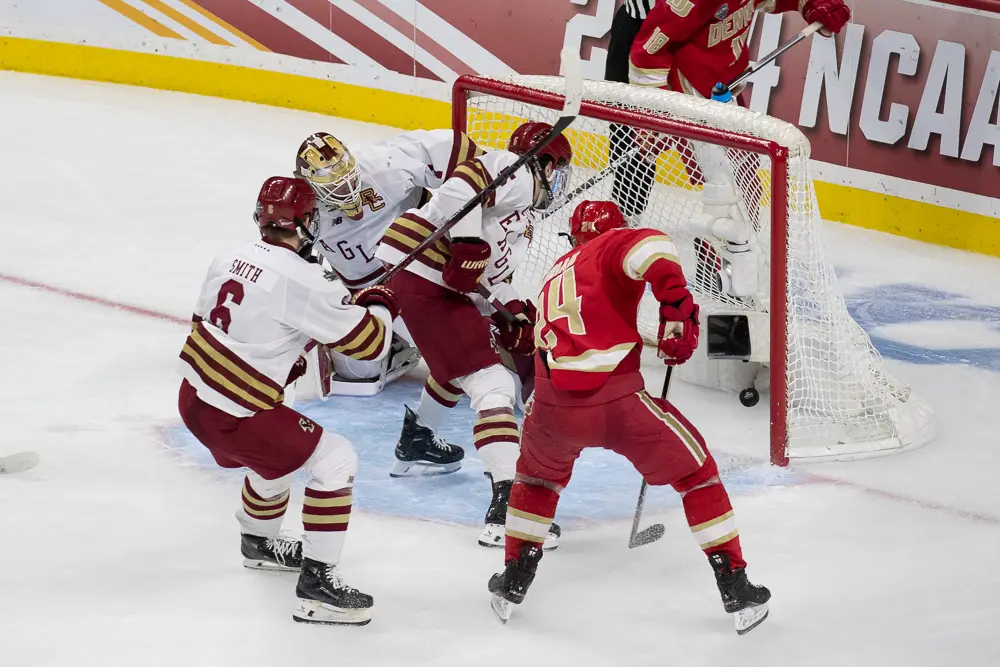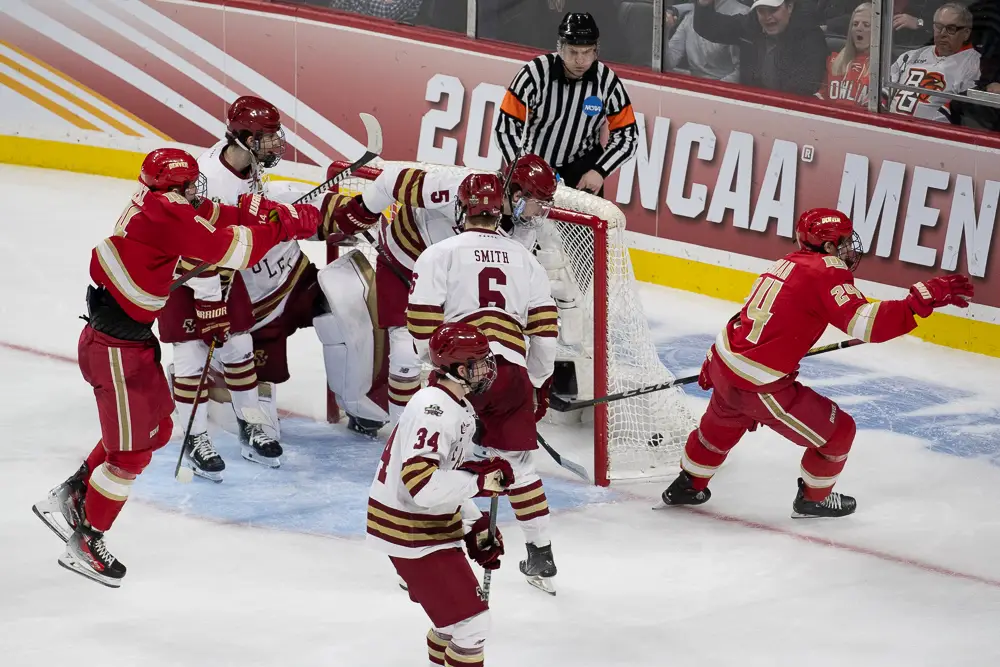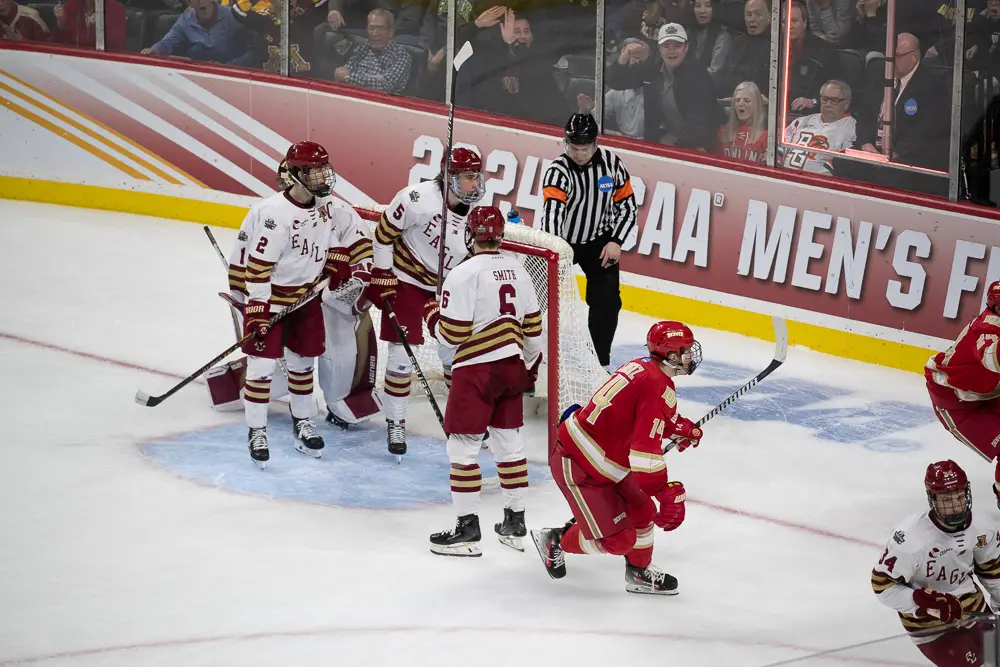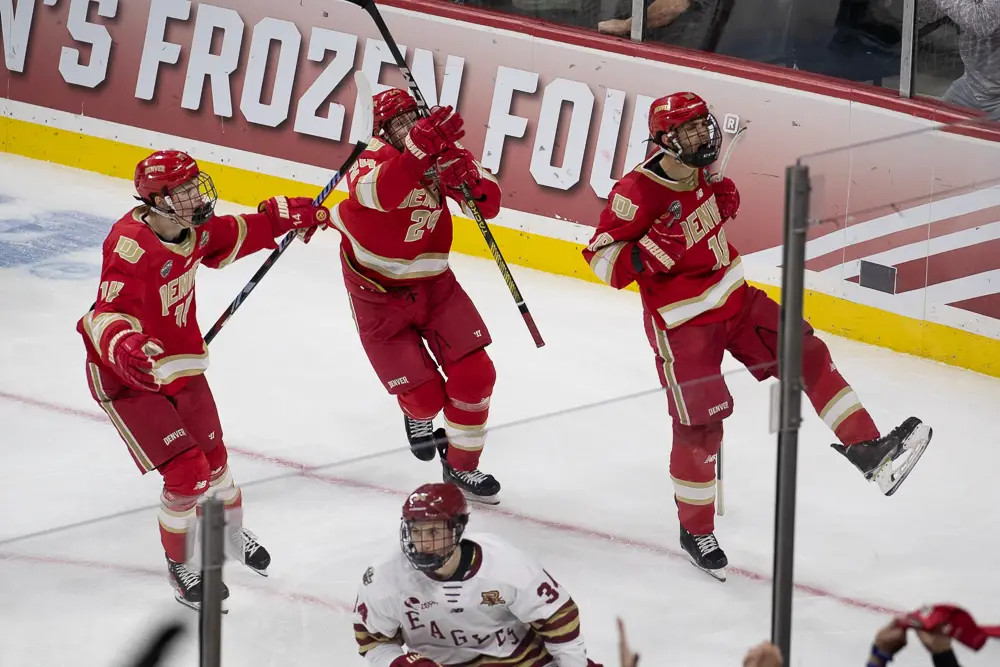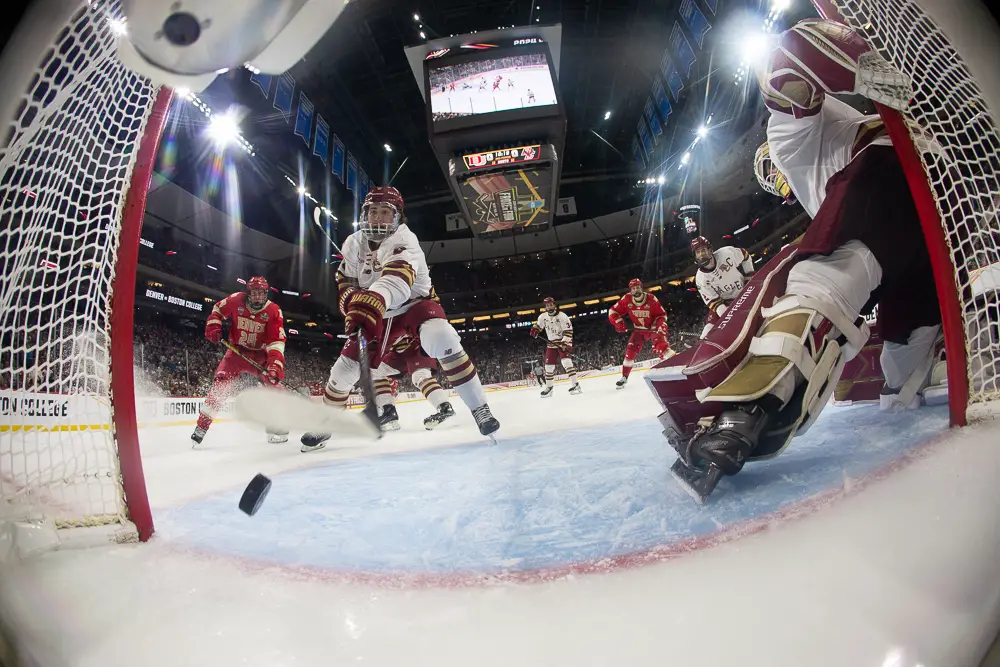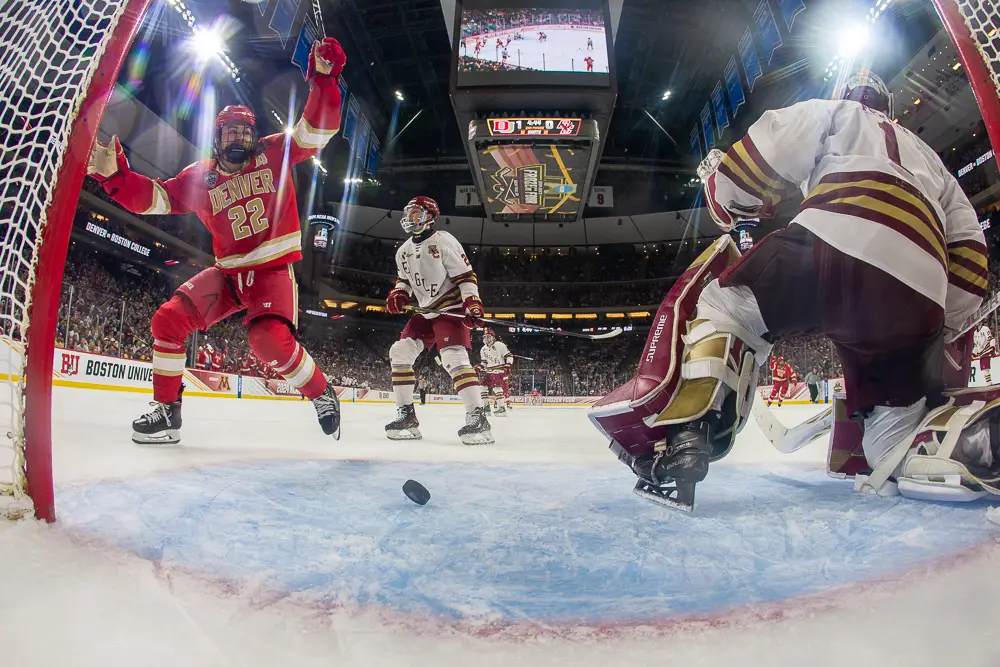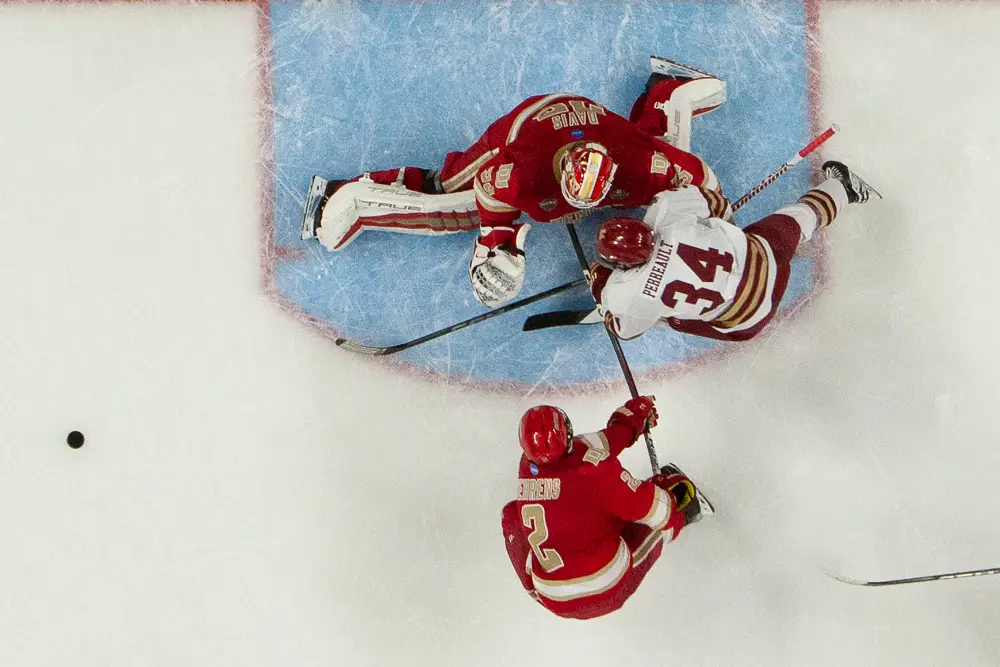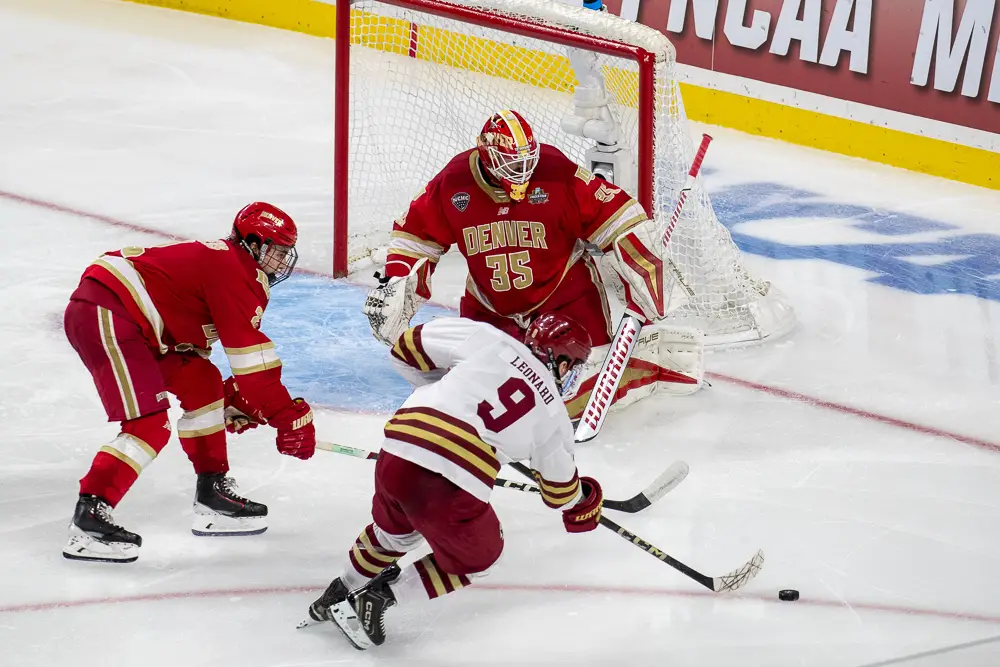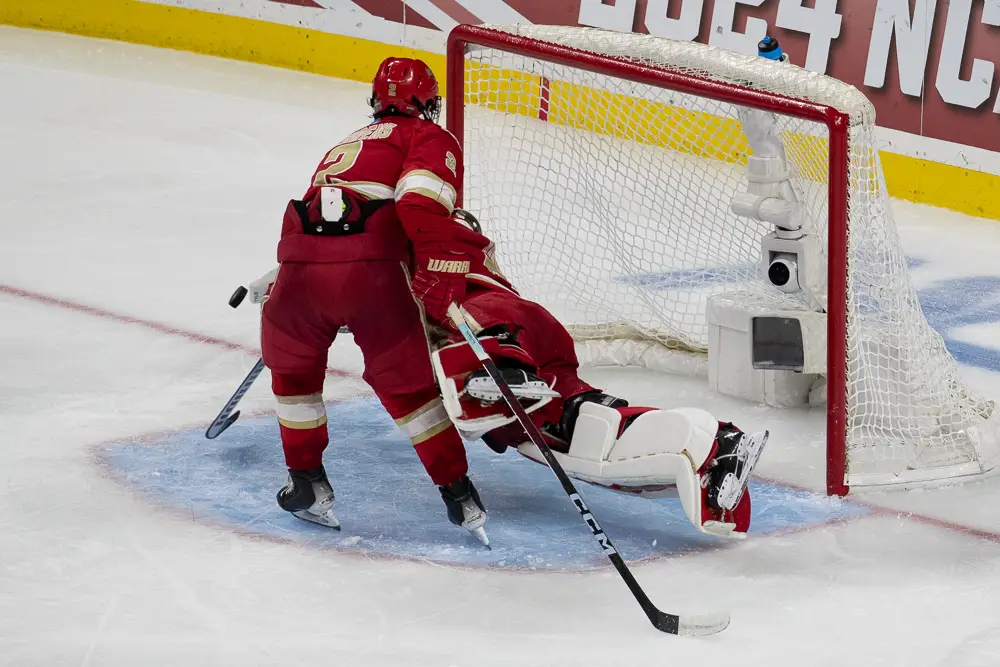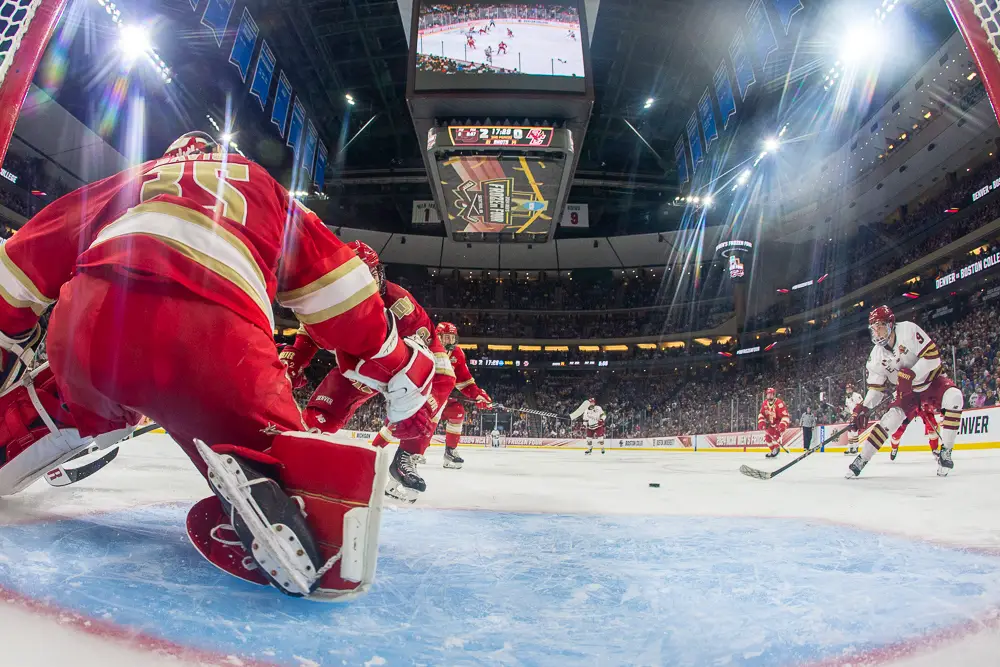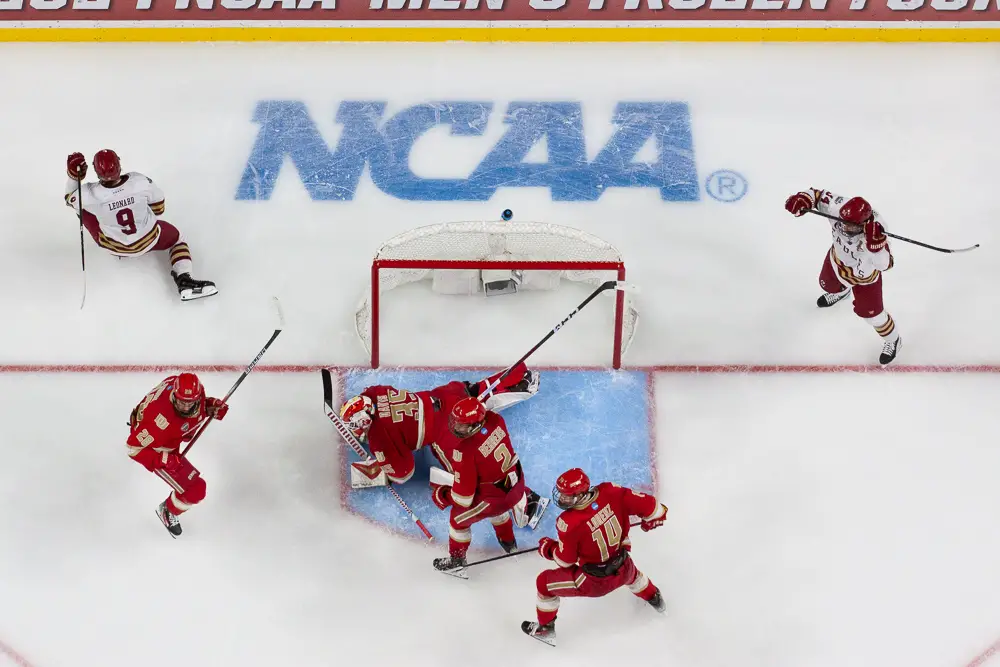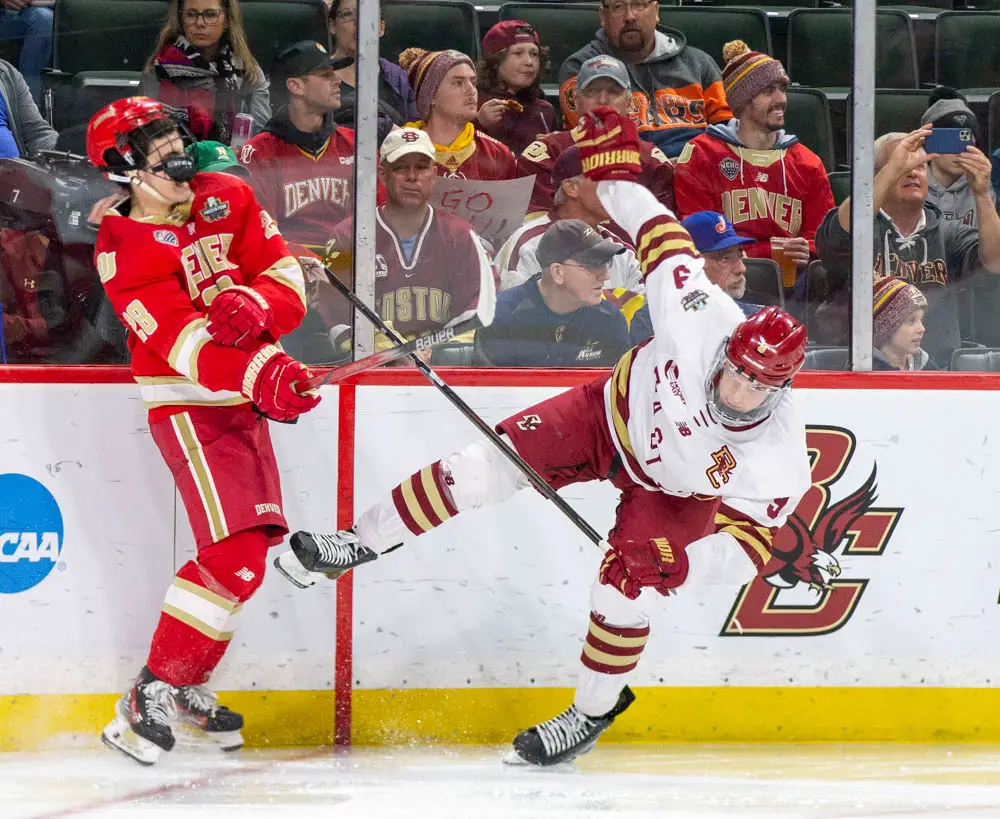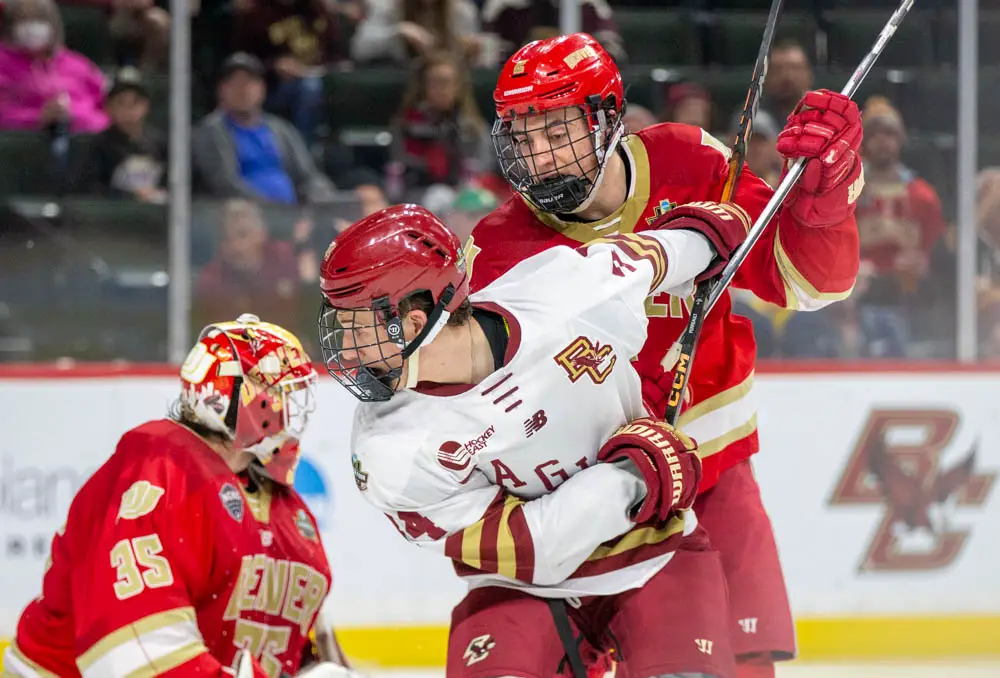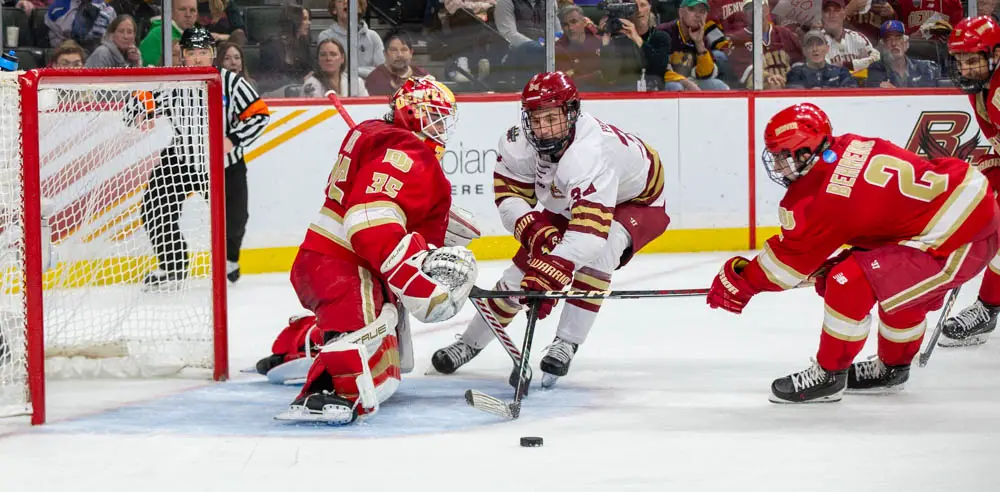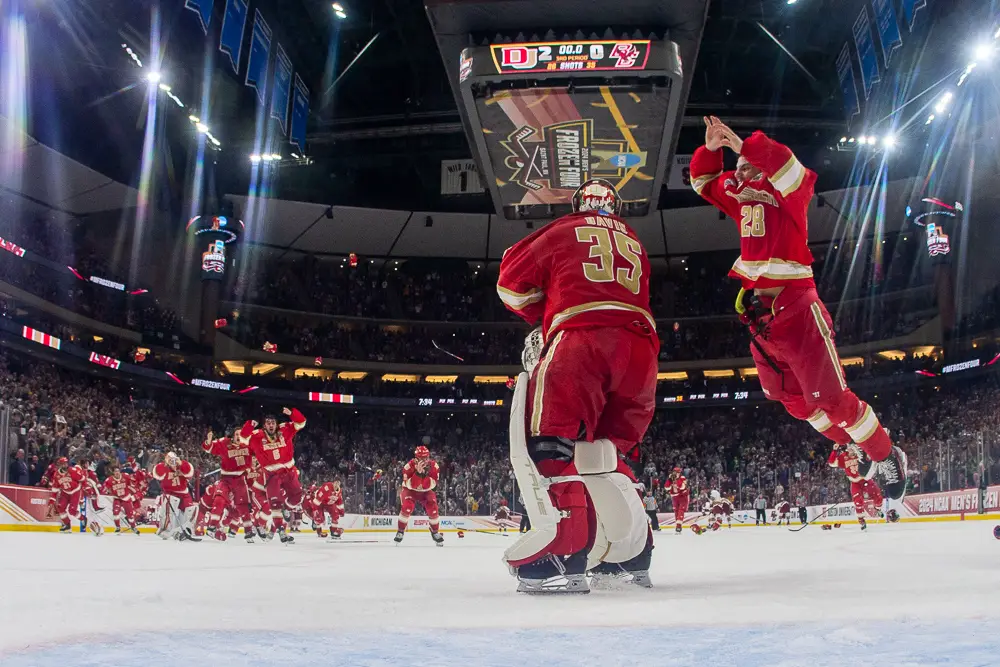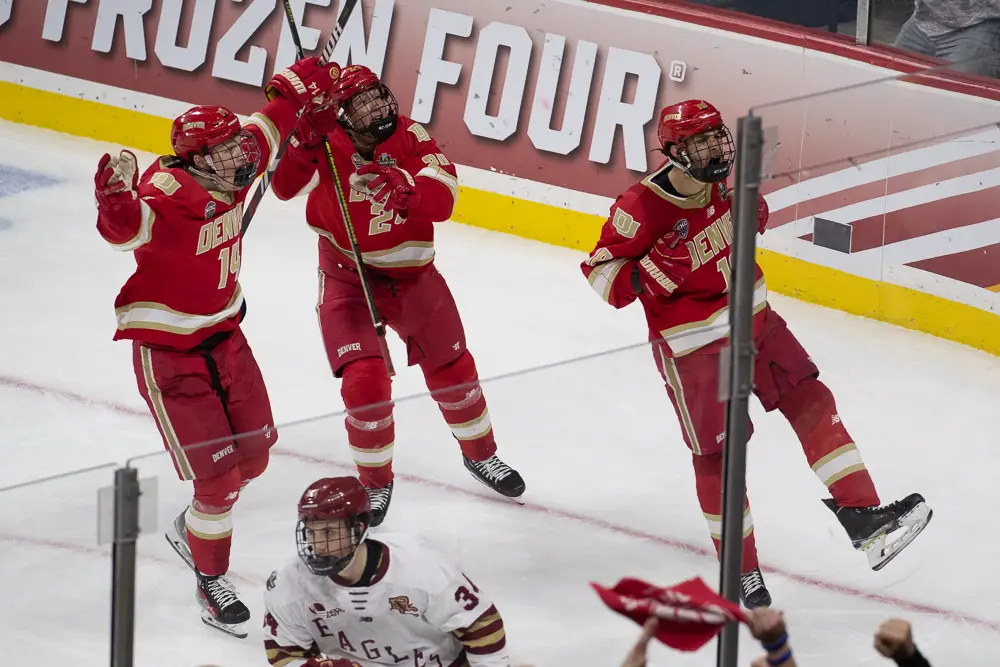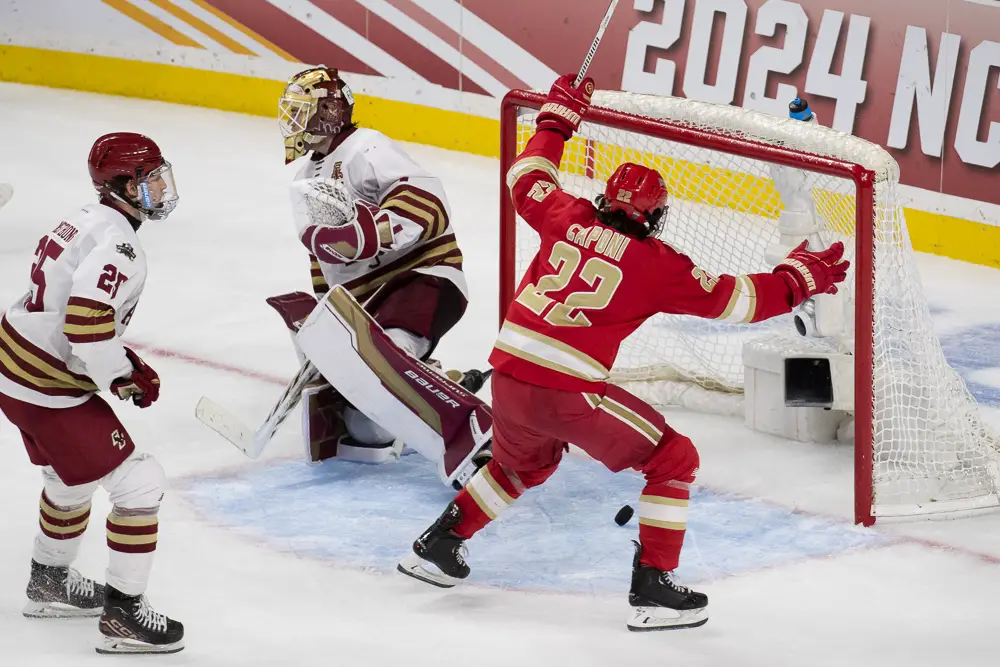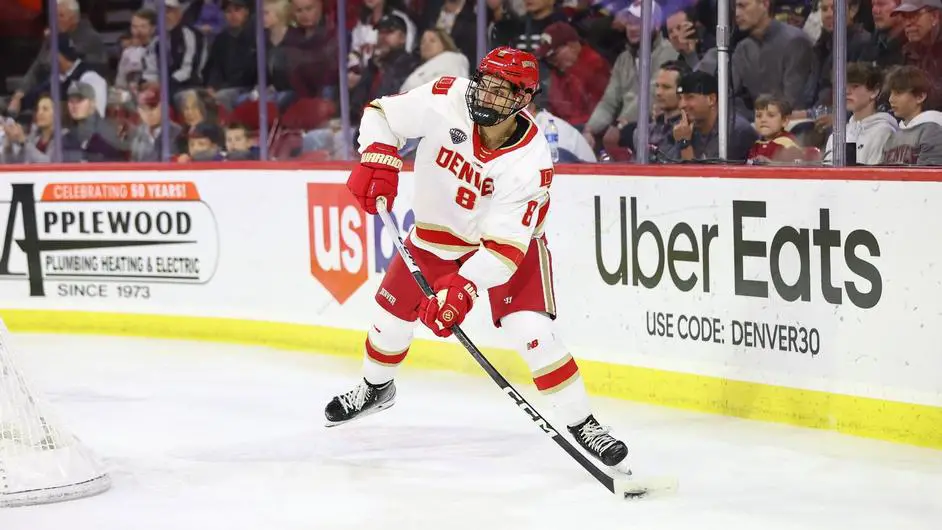
Denver junior defenseman Shai Buium has signed a three-year, entry-level contract with the NHL’s Detroit Red Wings beginning in 2024-25.
He will report to the AHL’s Grand Rapids Griffins for the remainder of the 2023-24 campaign on an amateur tryout.
Buium recorded career highs this season with seven goals, 29 assists and 36 points while appearing in 43 games. He finished fifth on the team in scoring and fourth in assists, both of which were the second-most by a Denver defenseman. He ended the campaign with a plus-33 plus-minus rating, tied with his brother, Zeev Buium, for the highest on the Pioneers.
He also posted personal highs in shooting percentage (.111), power-play goals (3) and game-winning goals (2). He recorded 14 penalty minutes and was second on DU with 46 blocked shots, tying a career high with three blocks in a game seven times during the campaign.
Buium helped Denver win its NCAA-record 10th national championship this past season and his second as a Pioneer after also winning in 2022. He played in nine career NCAA tournament contests at DU and recorded assists in both the 2022 and 2024 national championship games.
The San Diego, Calif., native earned his first all-conference honors this past season by being recognized on the all-NCHC second team. He was also a finalist for both the NCHC offensive defenseman and defensive defenseman of the year awards.
Buium recorded two career-long six-game point streaks during the season, as he registered two goals and six assists from Nov. 30-Dec. 1 and three goals and five assists from Jan. 20-Feb. 16. He had a season-high and matched a career best with three points on (goal, two assists) on Dec. 1 vs. North Dakota, one of eight multi-point outings for him during the season and helped him earn his first NCHC honor as defenseman of the week on Dec. 4.
The blueliner scored in consecutive games for the first time in his career on Feb. 2-3 vs. Western Michigan and finished the campaign by recording 21 points (3 goals, 18 assists) in the final 24 games in a stretch that began on Jan. 12 vs. St. Cloud State.
Buium appeared in his 100th career contest on Jan. 20 at Omaha, and he recorded his 50th career point on Dec. 1 vs. North Dakota and 50th assist on Feb. 2 vs. Western Michigan.
The junior finishes his collegiate career with 75 points in 120 games across three seasons, recording 14 goals and 61 assists. Buium recorded a then-personal-best 21 points (4 goals, 17 assists) while playing in 38 games as a sophomore in 2022-23, and he was one of four DU players to be named to the 2021-22 NCHC all-rookie team after totaling 18 points (3 goals, 15 assists) in 39 games during his first championship season.
Buium was selected by Detroit the summer before his DU freshman campaign in the second round (36th overall) of the 2021 NHL Draft.
